Fruche has released the lookbook for its critically acclaimed Spring/Summer 2020 collection. Inspired by Agbogho Mmuo, a festival held in Nigeria’s Igboland, the designer draws on freedom as the theme for this season.
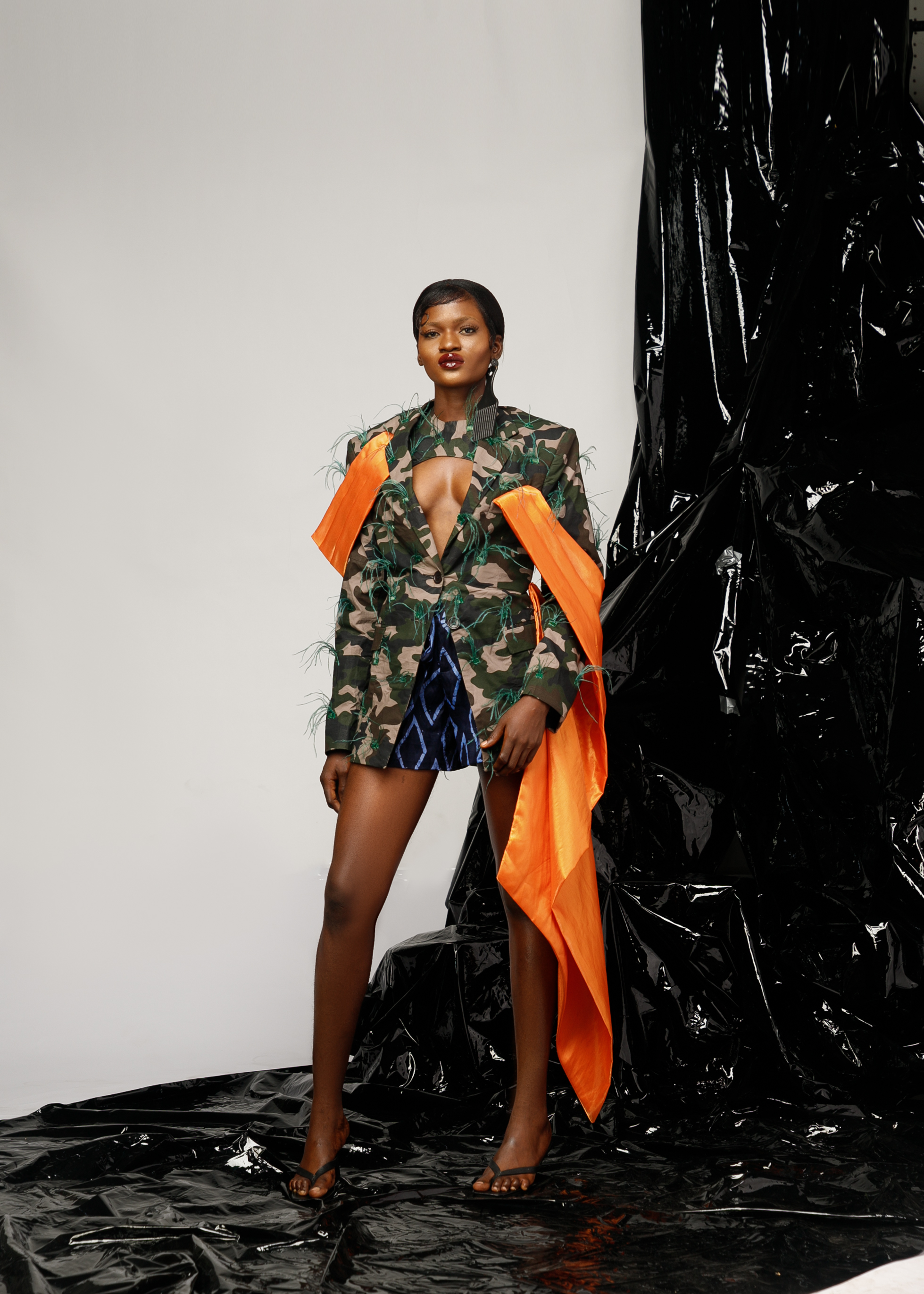
According to the brand:
Agbogho Mmuo is an annual performance held in the northern part of the Igbos’ traditional territory. Performed only by men wearing masks, the masquerades imitate the character of adolescent girls, exaggerating the girls’ beauty and movements, the smallness of a young girl’s features and the whiteness of her complexion, which is an indication that the mask is a spirit. Most maiden spirit masks are decorated with representations of hair combs, and other objects, modeled after late 19th-century ceremonial hairstyles.
Igbo culture in pre-colonial times was a culture in which gender was reconstructed and performed according to social need, where gender and sex did not coincide. Instead, gender was flexible and fluid, allowing women to become men and men to become women. In most cases, Igbo women did not cover their chest areas. Maidens usually wore a short wrapper with beads around their waist with other ornaments such as necklaces. Both men and women wore wrappers.
The idea that men were free-spirited and able to celebrate femininity is admirable. These men dressed up in elaborate costumes and had fun without a care in the world. Nowadays individuals who are different are disinvited from a world where being basic is the new form of dress-up. Fruché aspires for a world where free-spirited Nigerians are free to express themselves whichever way they choose without the fear of being judged.
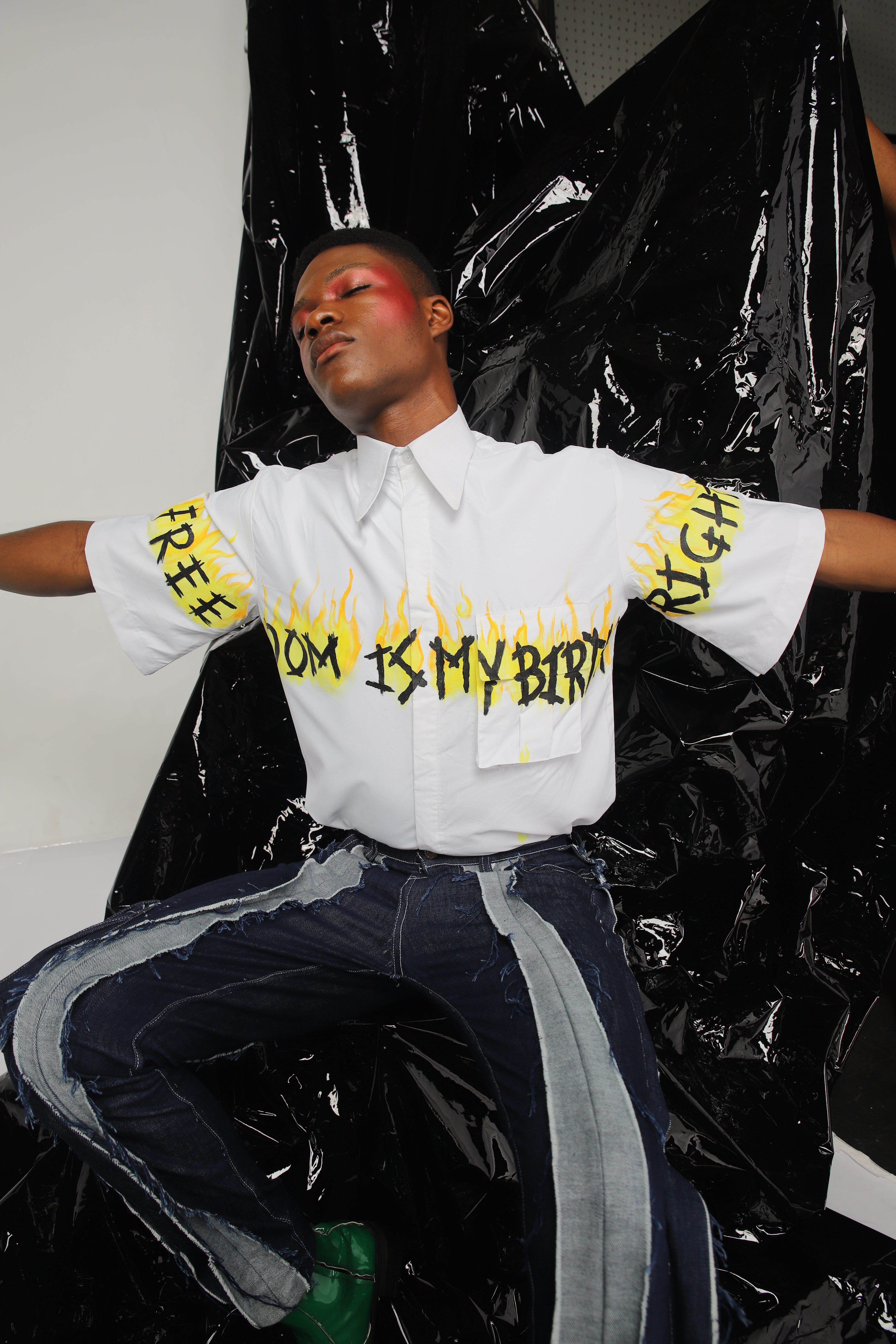
Akwa Ocha was used in the collection. Akwa Ocha when translated from Igbo to English means white cloth. It is indigenous to the Anioma people of Delta state otherwise referred to as Delta-Igbo; where Aghuno is from. Akwa Ocha is made from locally produced wool and is usually made into a wrapper. This fabric is worn mostly during important occasions like weddings, meetings, and funerals. The cloth, which is hand-woven by women, is very strong that it can last for hundreds of years.
Aghuno believes that African mythology should not be demonized but rather appreciated like others around the world. Aghuno’s grandmother was Nne Mmuo (‘spirit mother’ who leads her children). This title was bestowed on her at a very young age. It is one of the principal characters of this masking ensemble. Mmuo masquerades being seen as celestial bodies/ spirits also signifies the importance they have in Igbo tradition. Inspiration also came from religious dressing to depict African traditional religion and Aghuno’s catholic upbringing. He explored silhouettes inspired by cassocks and nun’s habit.
Nigerian Artist; Dricky Stickman hand-painted the words “Freedom is my birthright” on a shirt made with locally produced cotton. We hand-dyed Adire silk and cotton fabric with symbols and colours inspired by Mmuo masquerade costumes and Ben Enwonwu’s Agbogho Mmuo paintings. Handwoven Asooke fabric is indigenous to the Yorubas as well as hand-beaded pieces inspired by red coral beads usually worn ceremonially by the Igbos. Puff sleeves inspired by Igbo women’s cultural attire and also Chantilly lace and end of line denim which were sourced locally.
See the full lookbook below
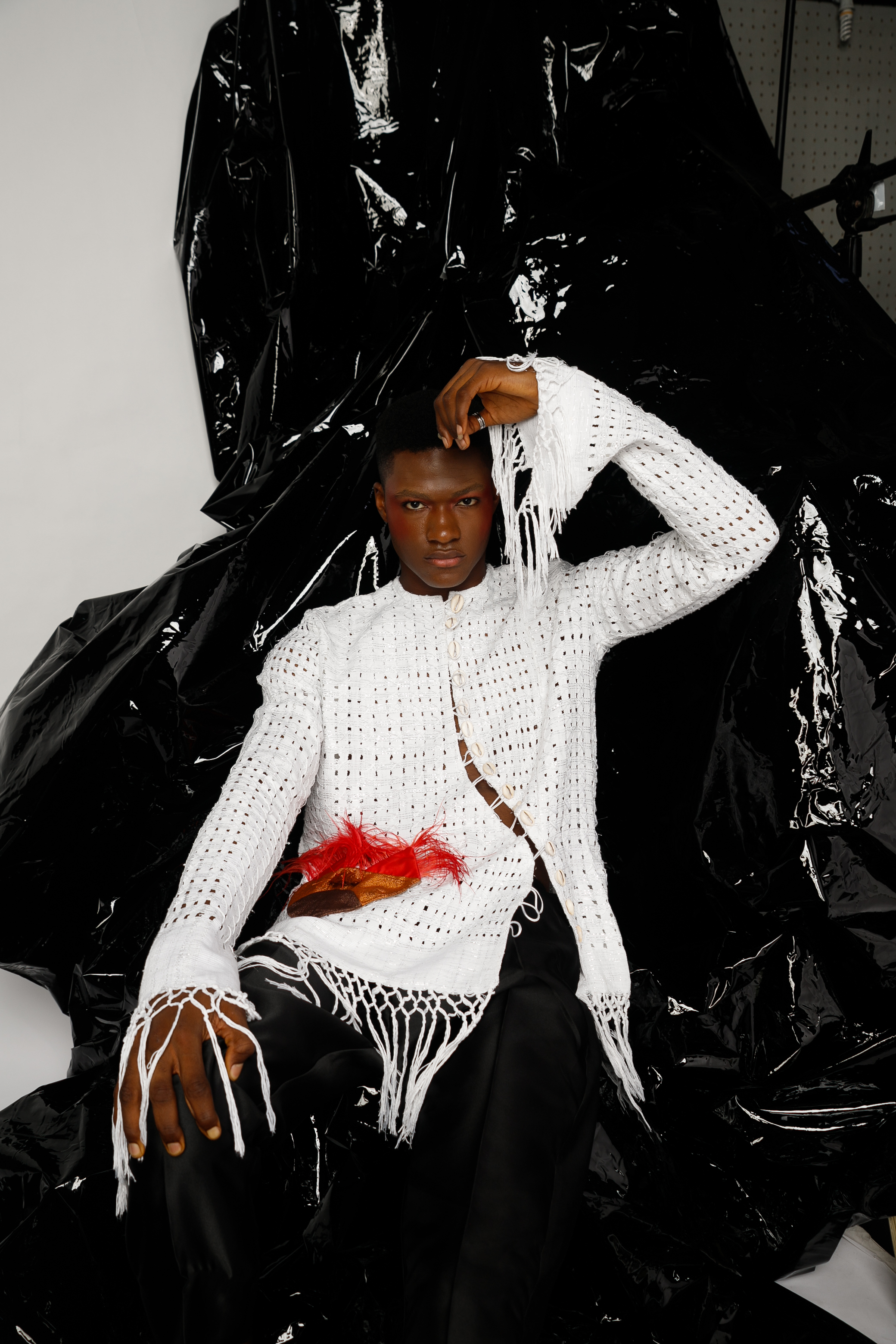
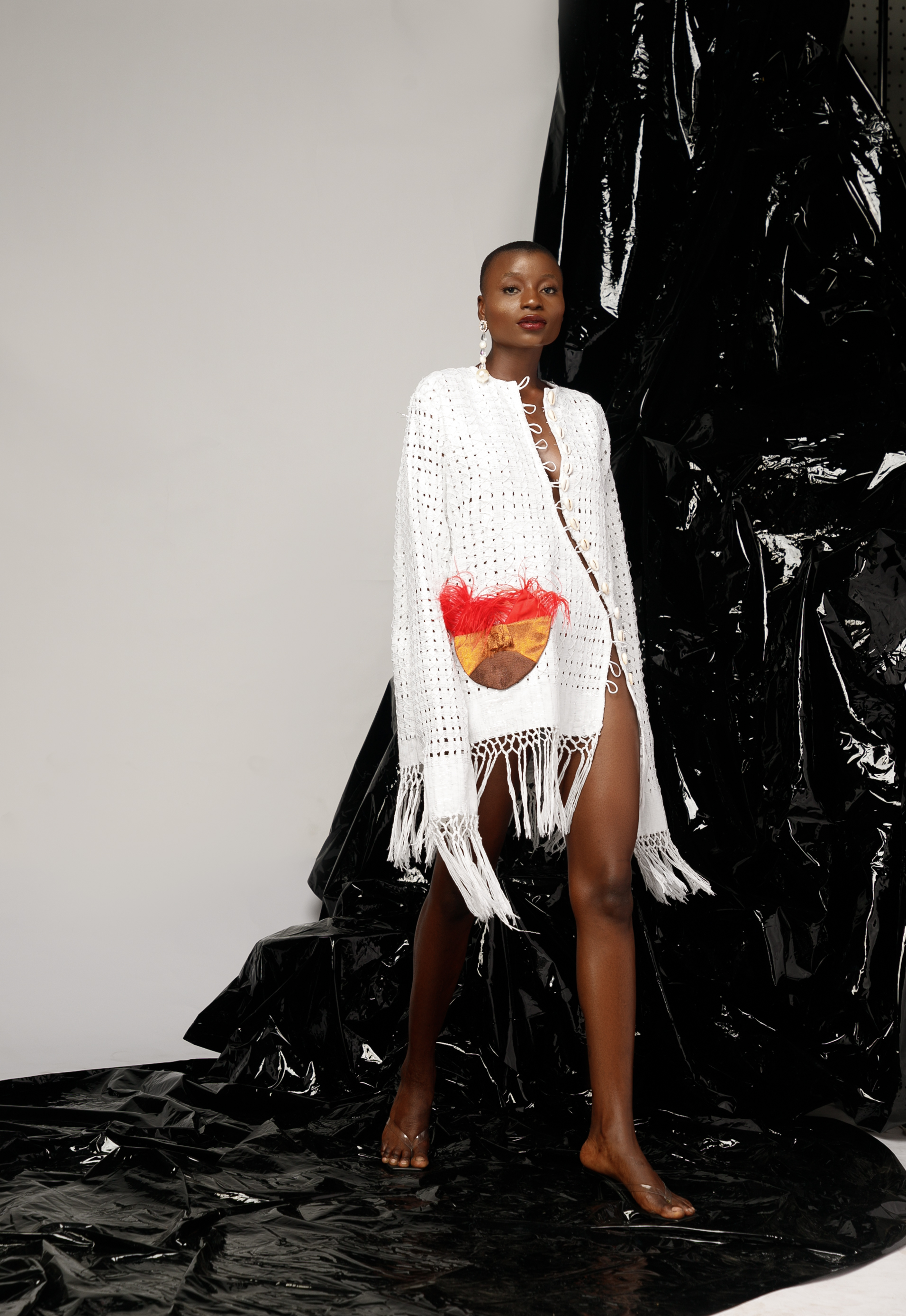
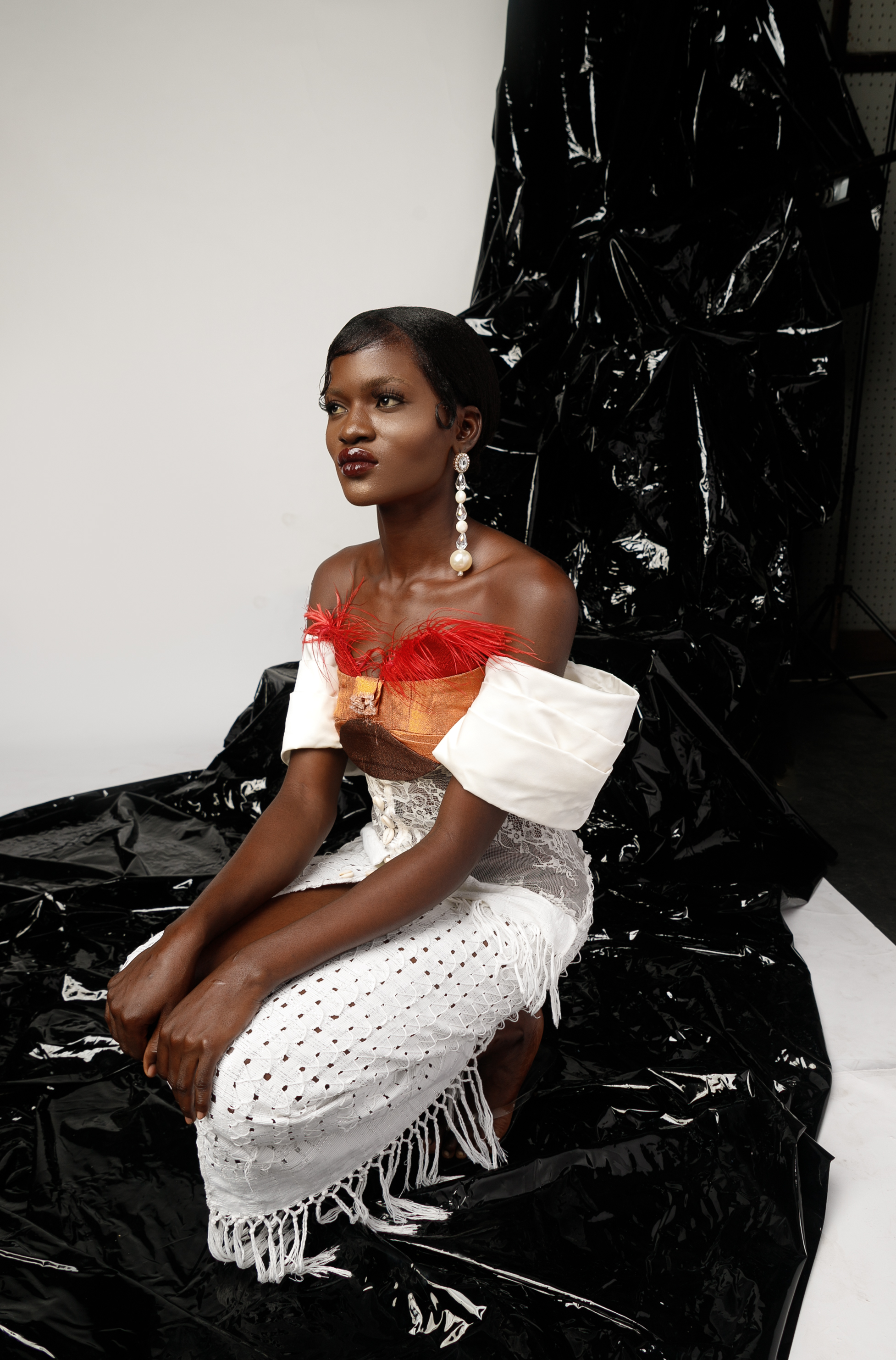
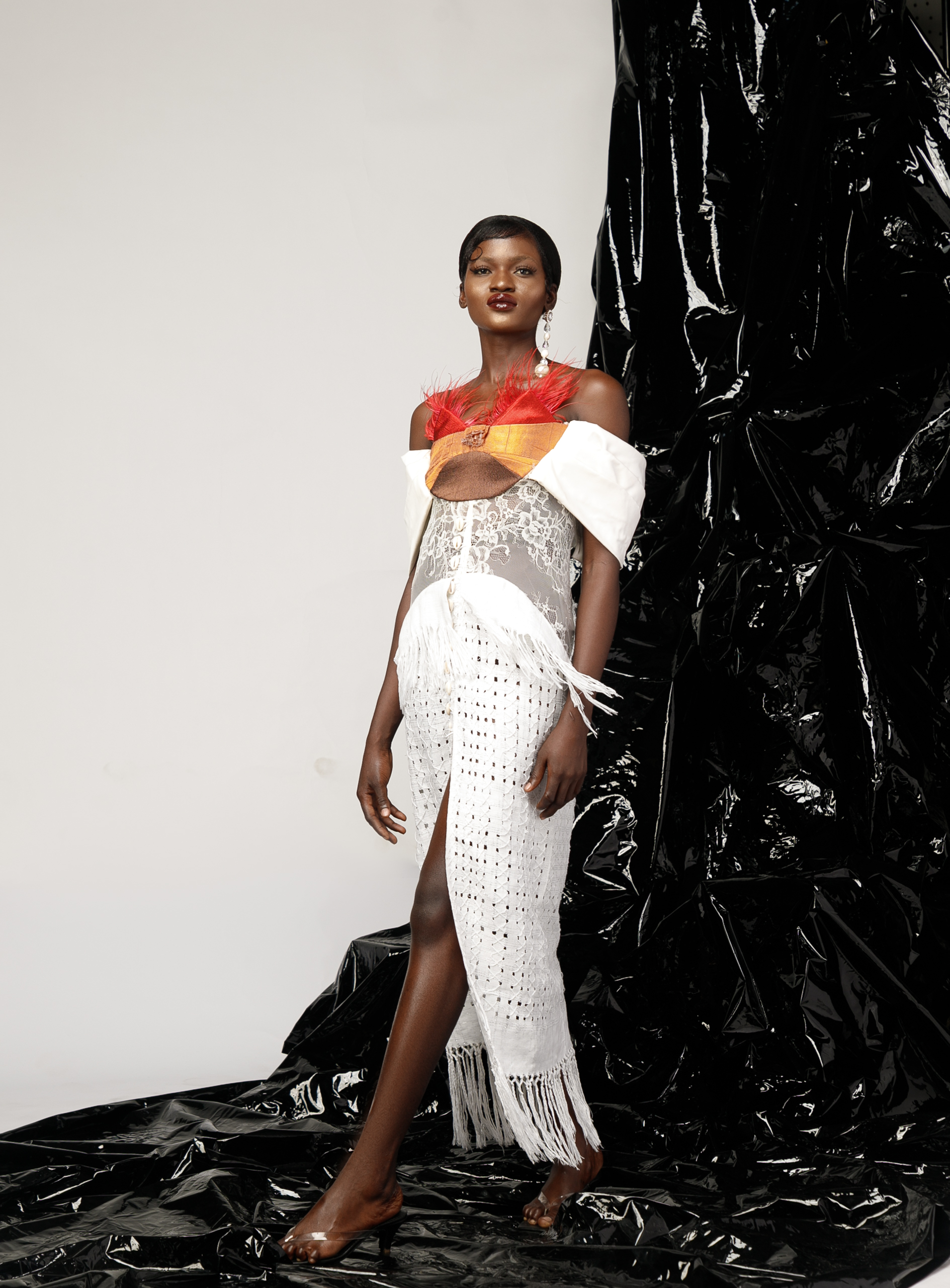

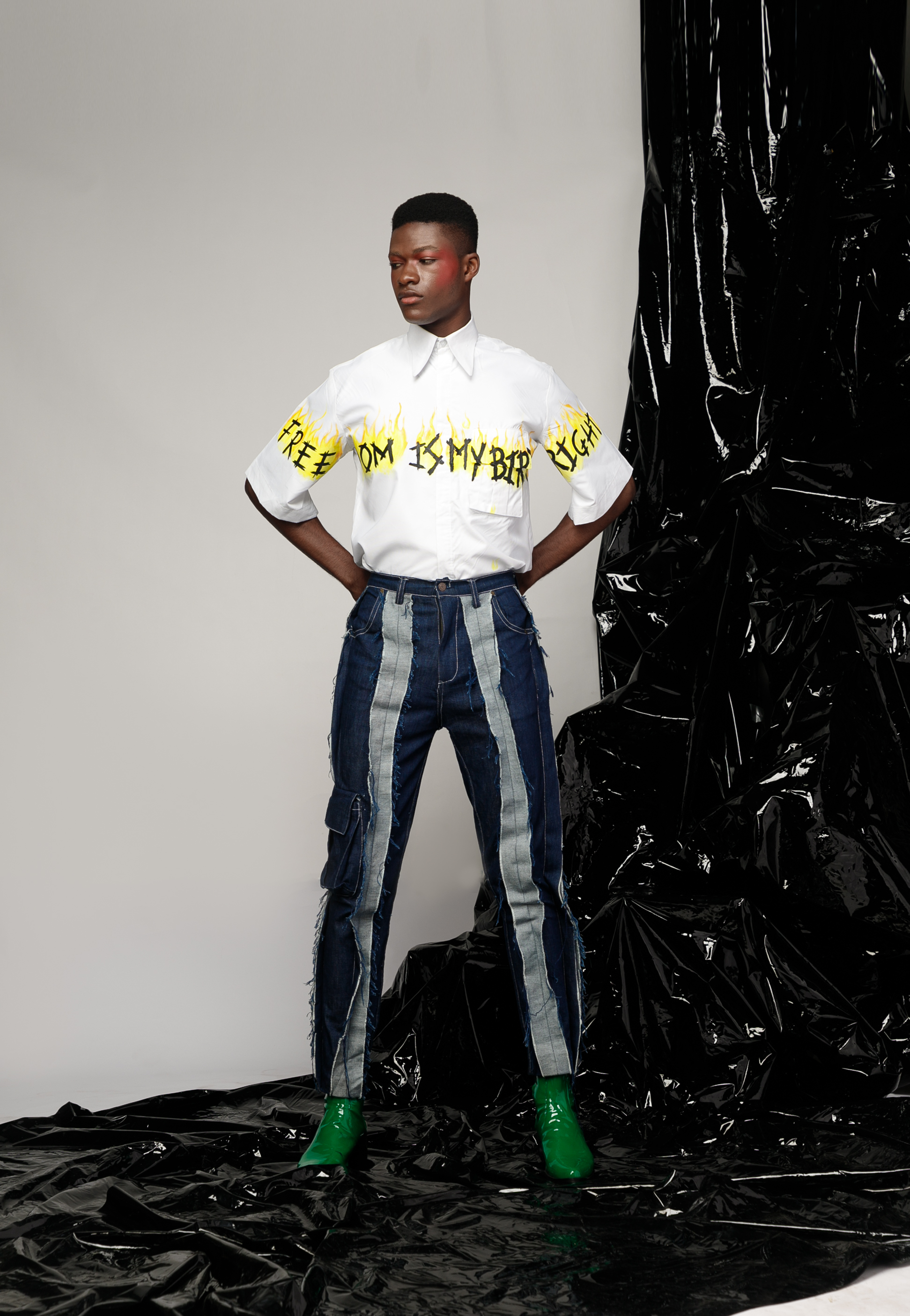
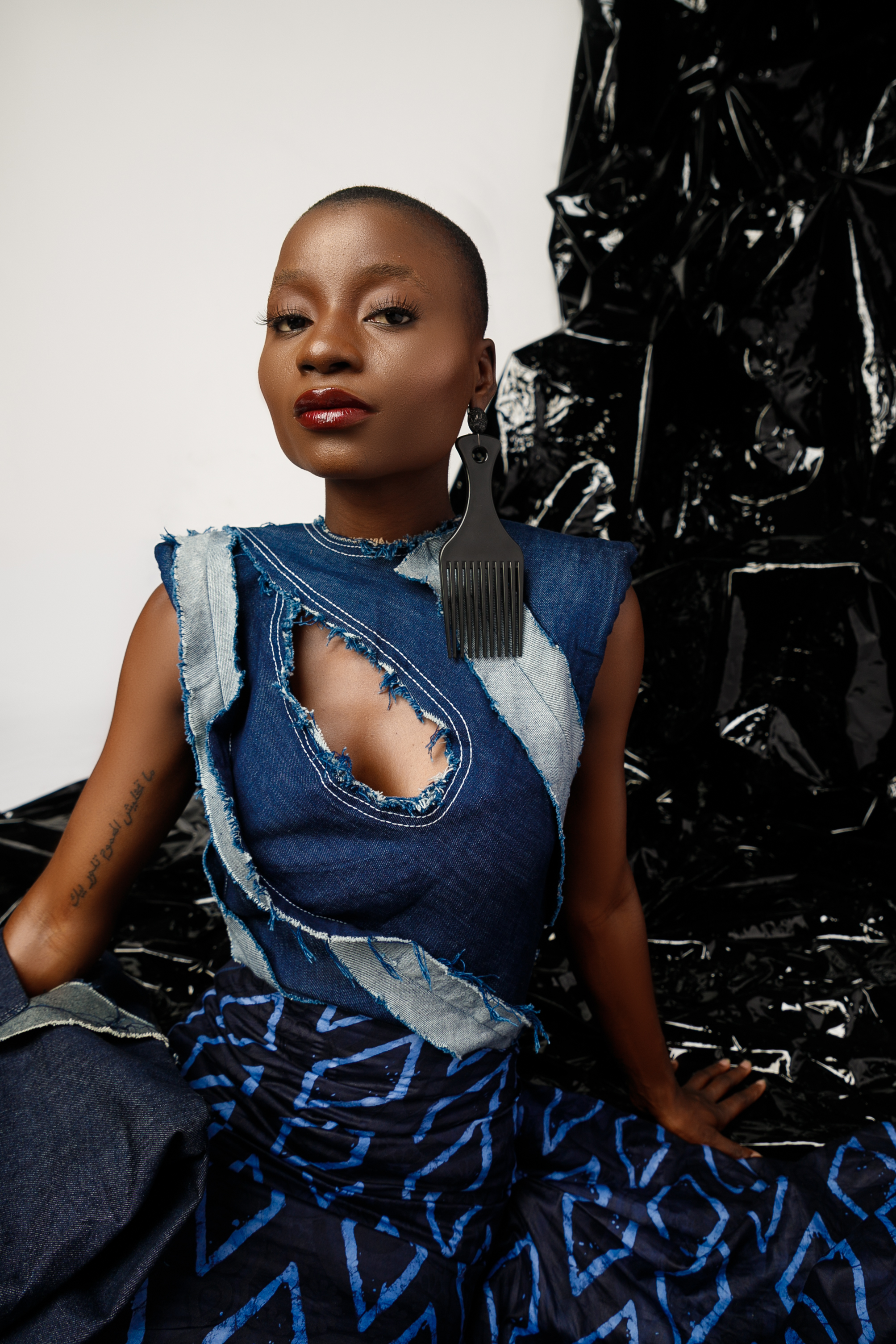
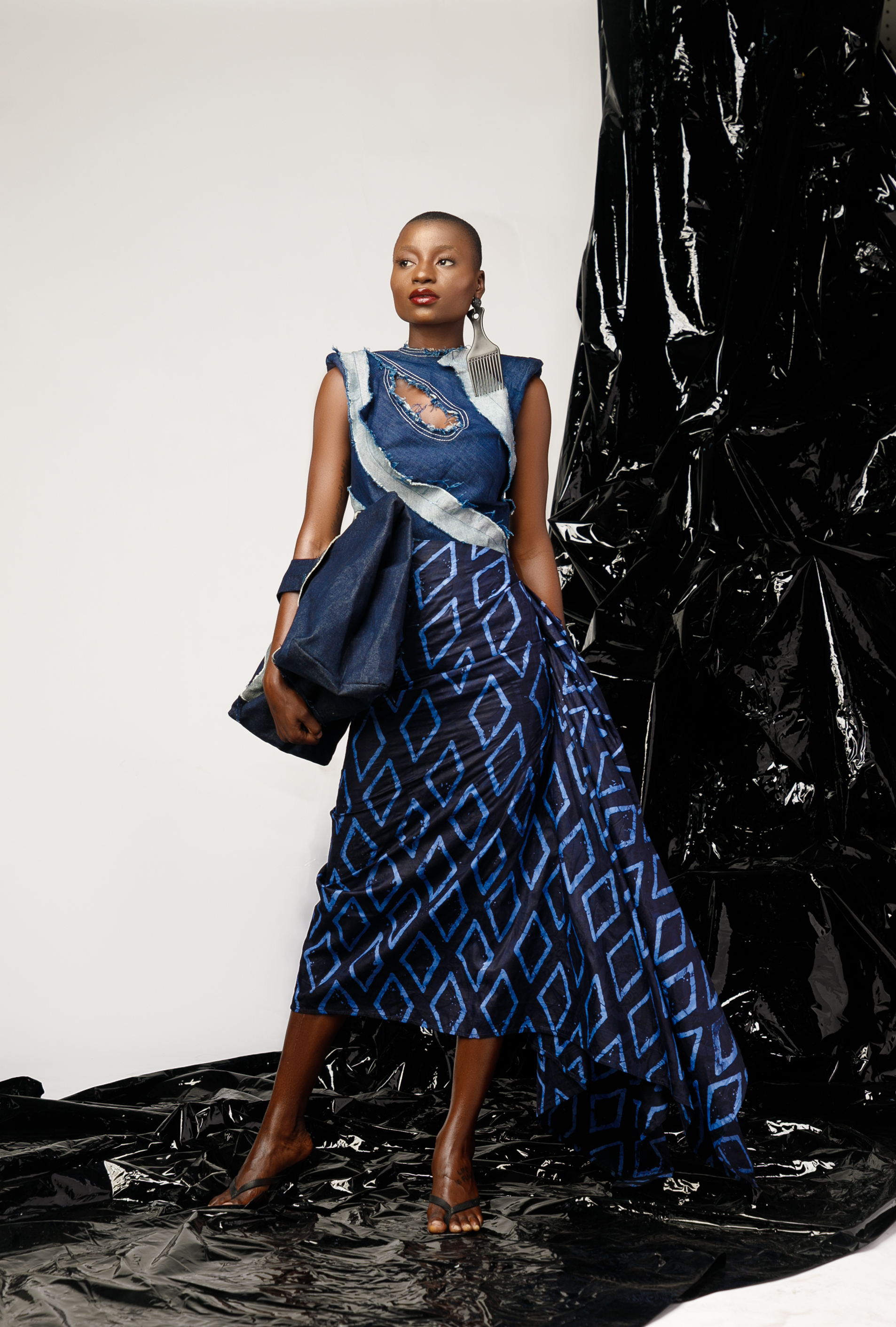
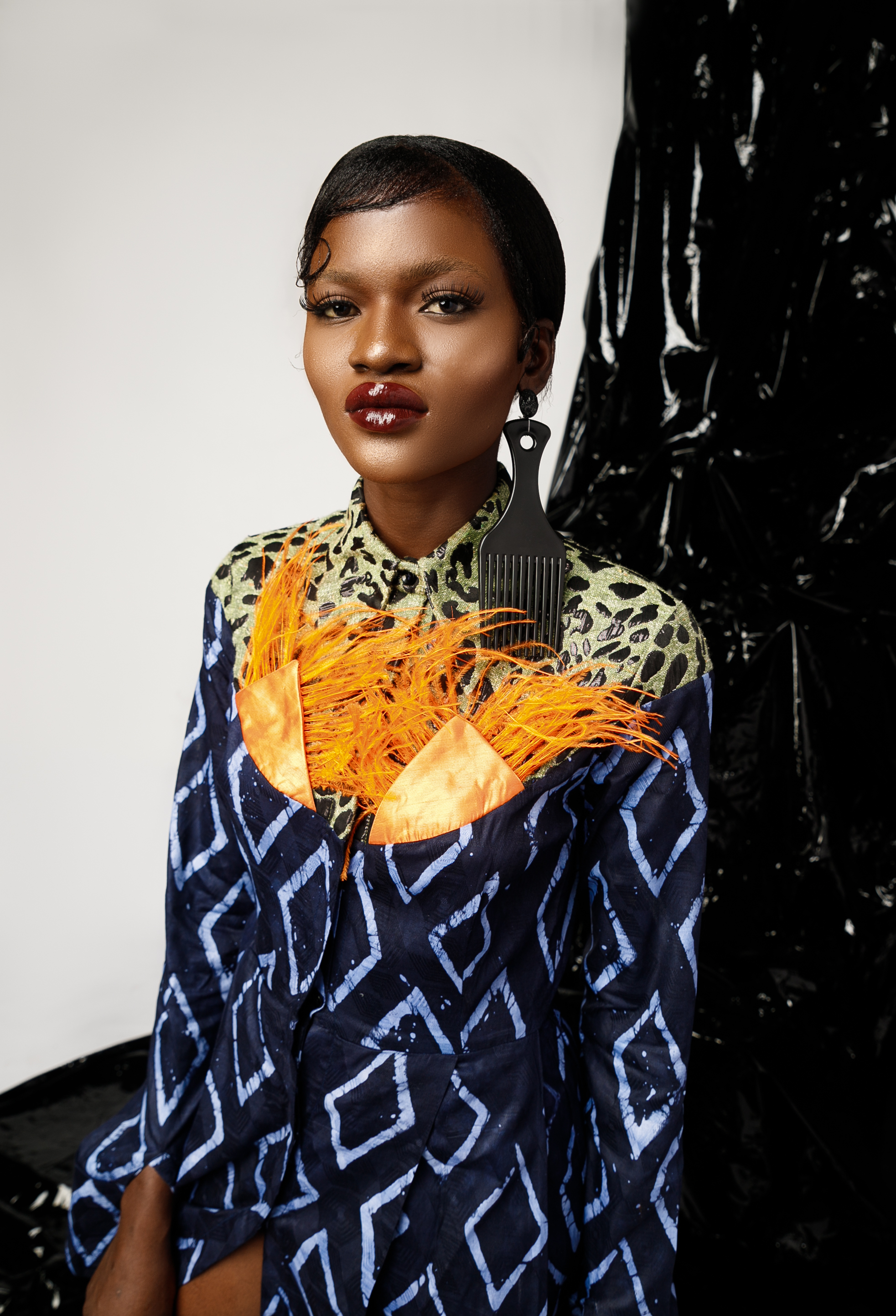
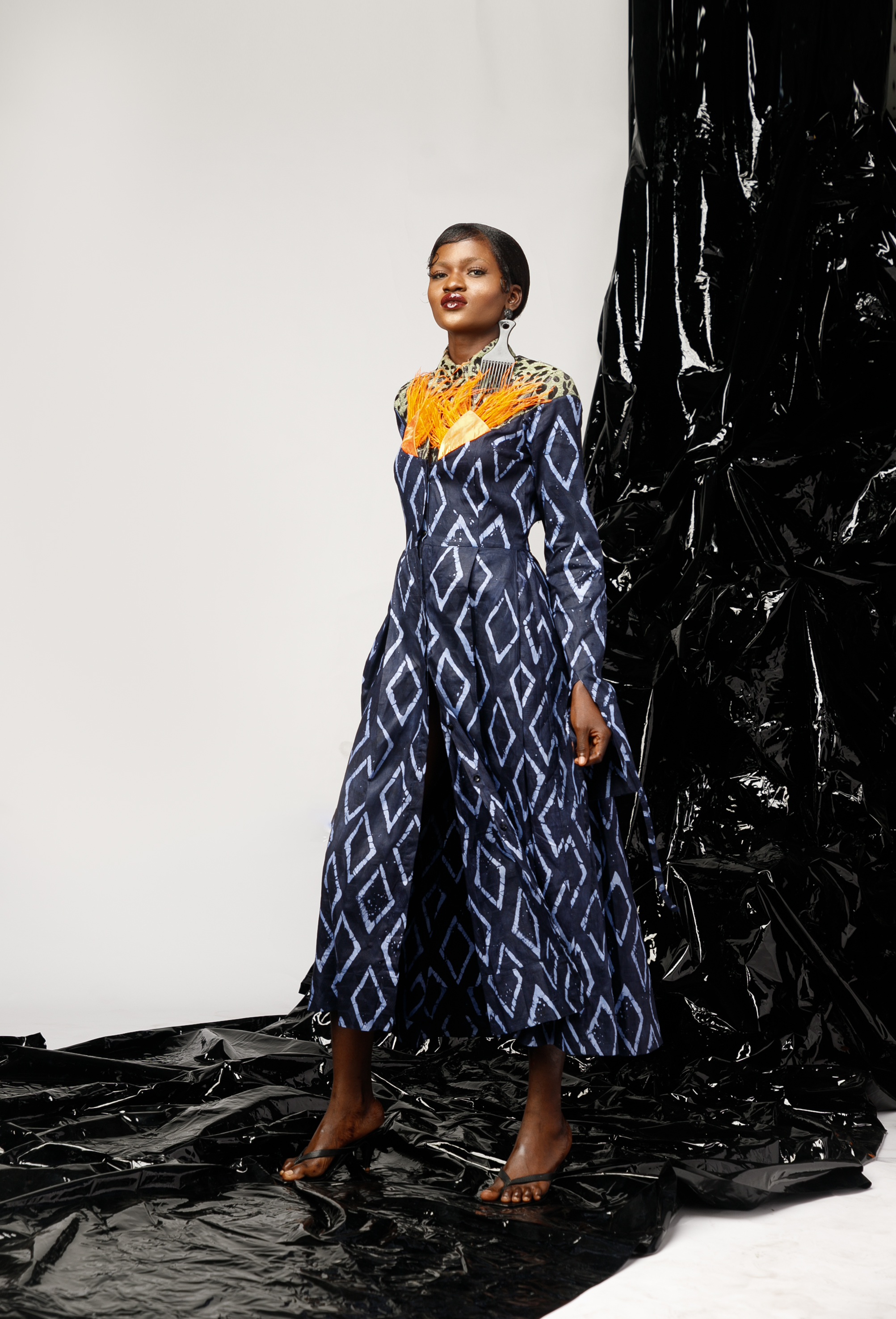
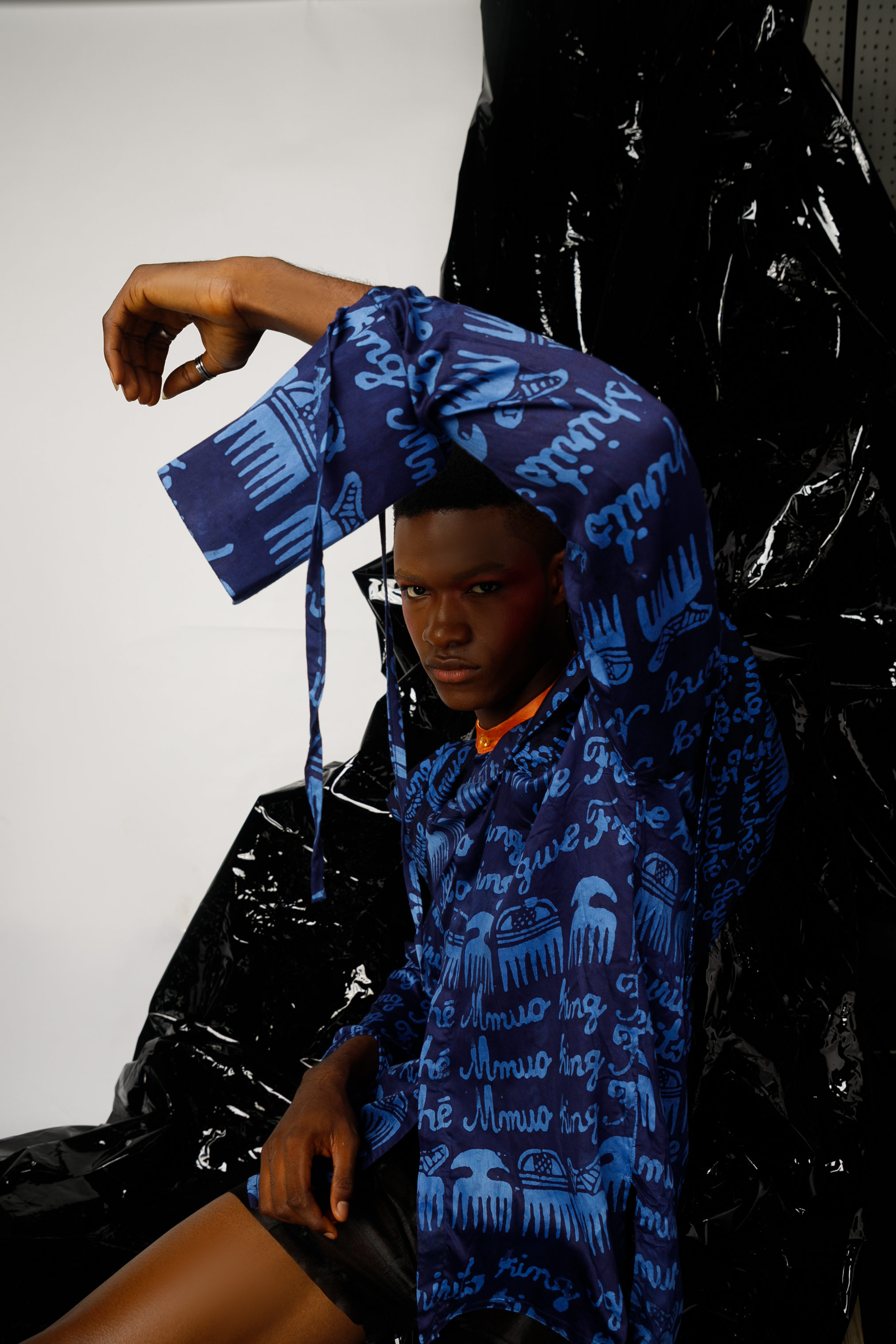
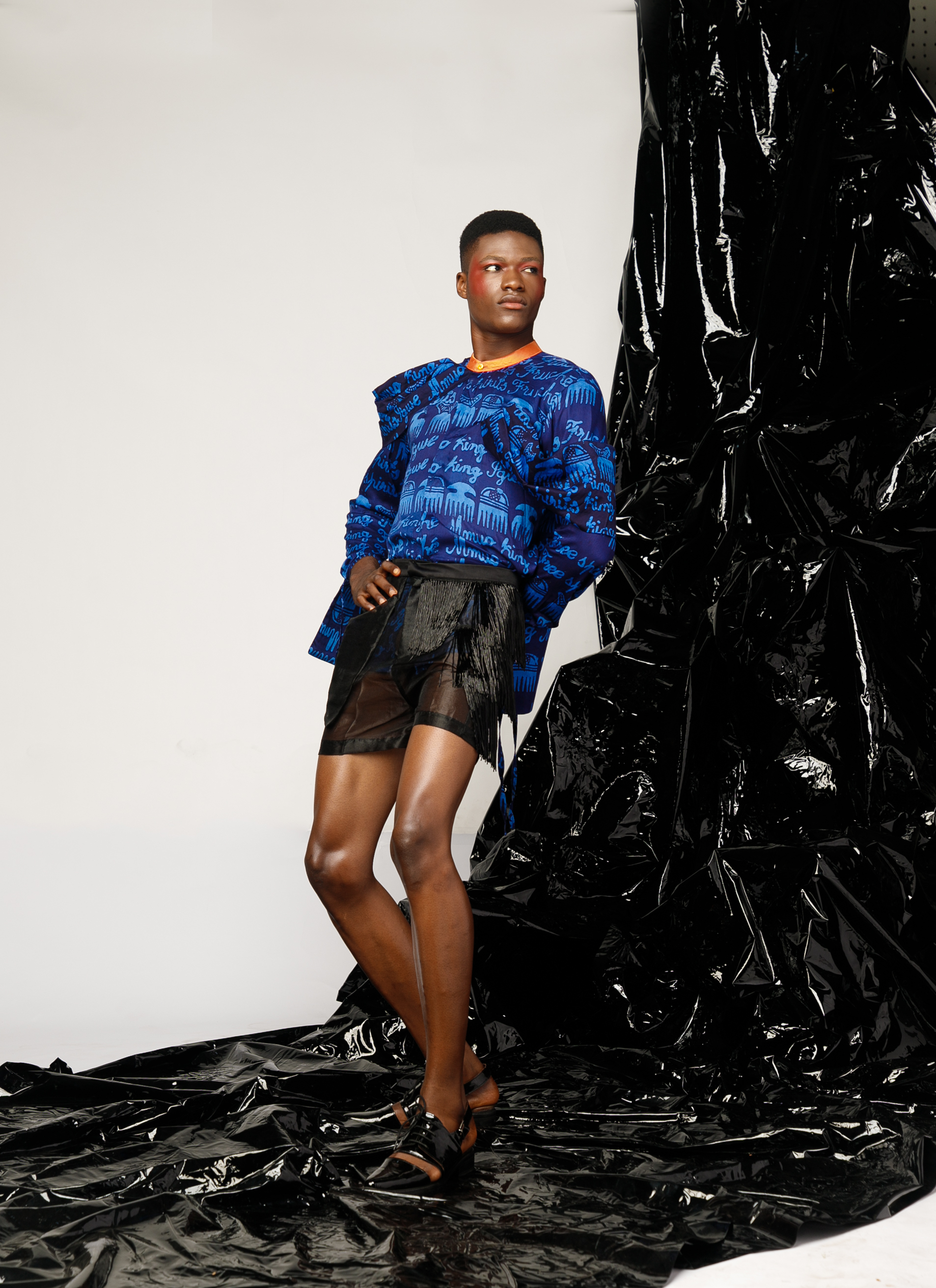
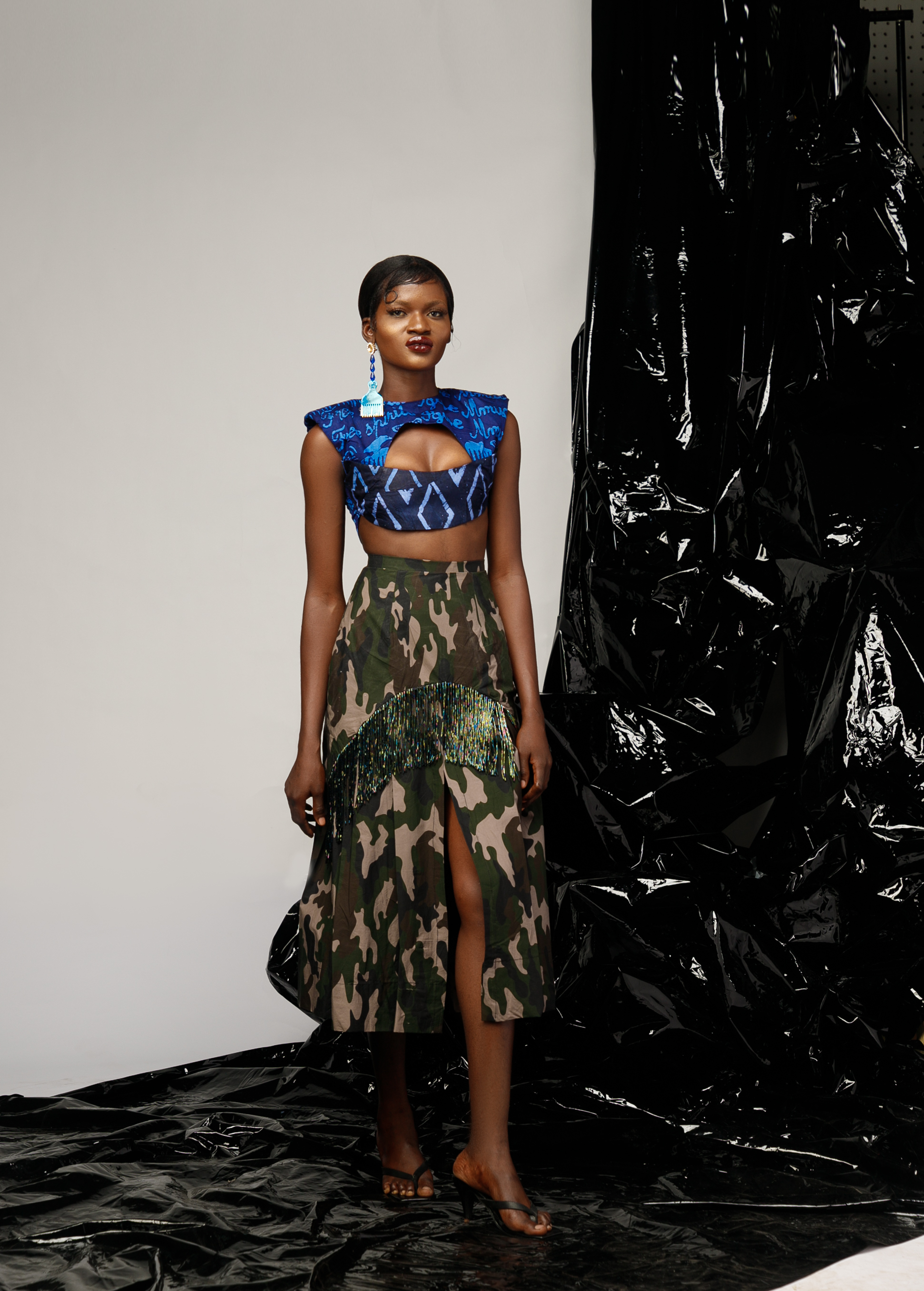

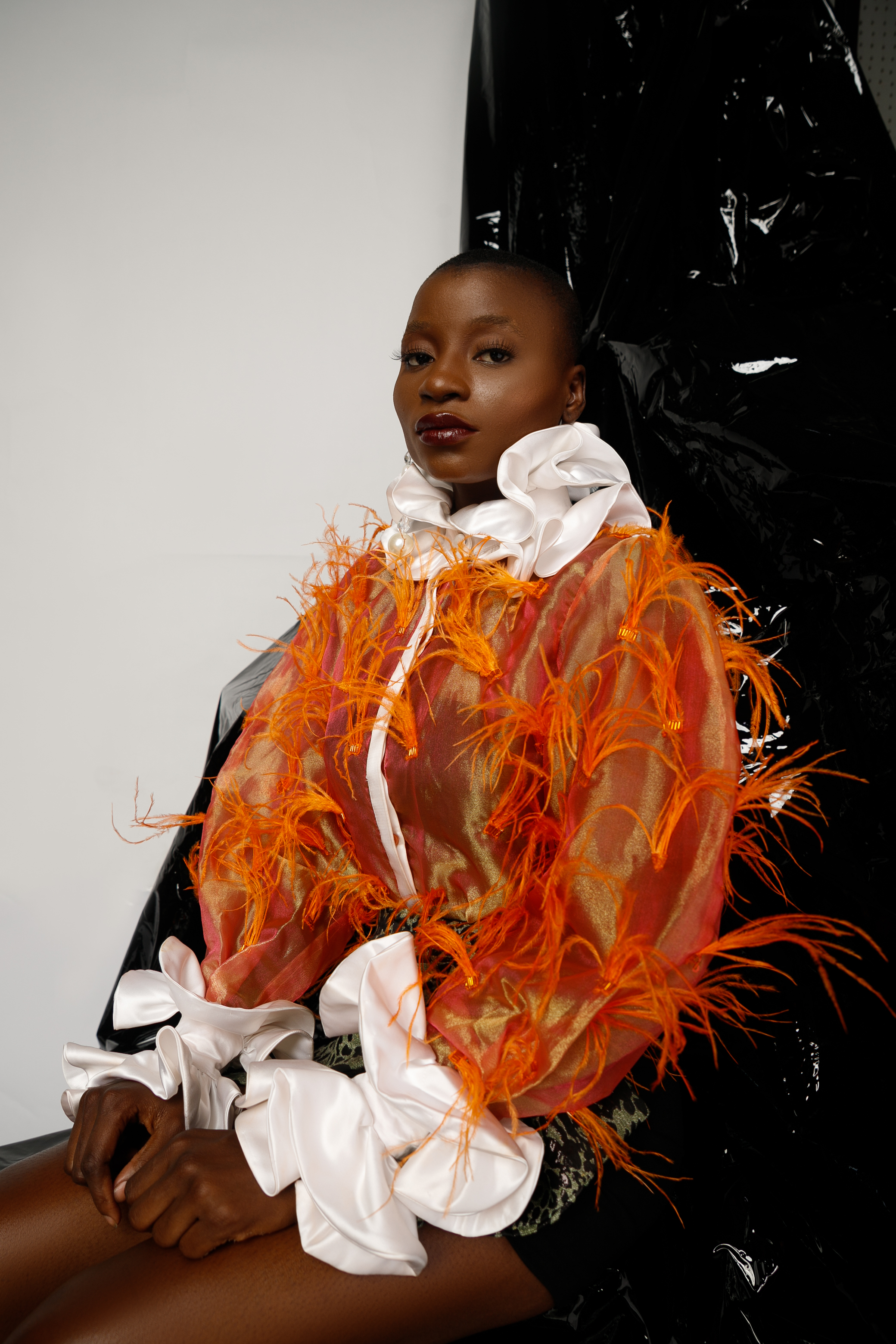
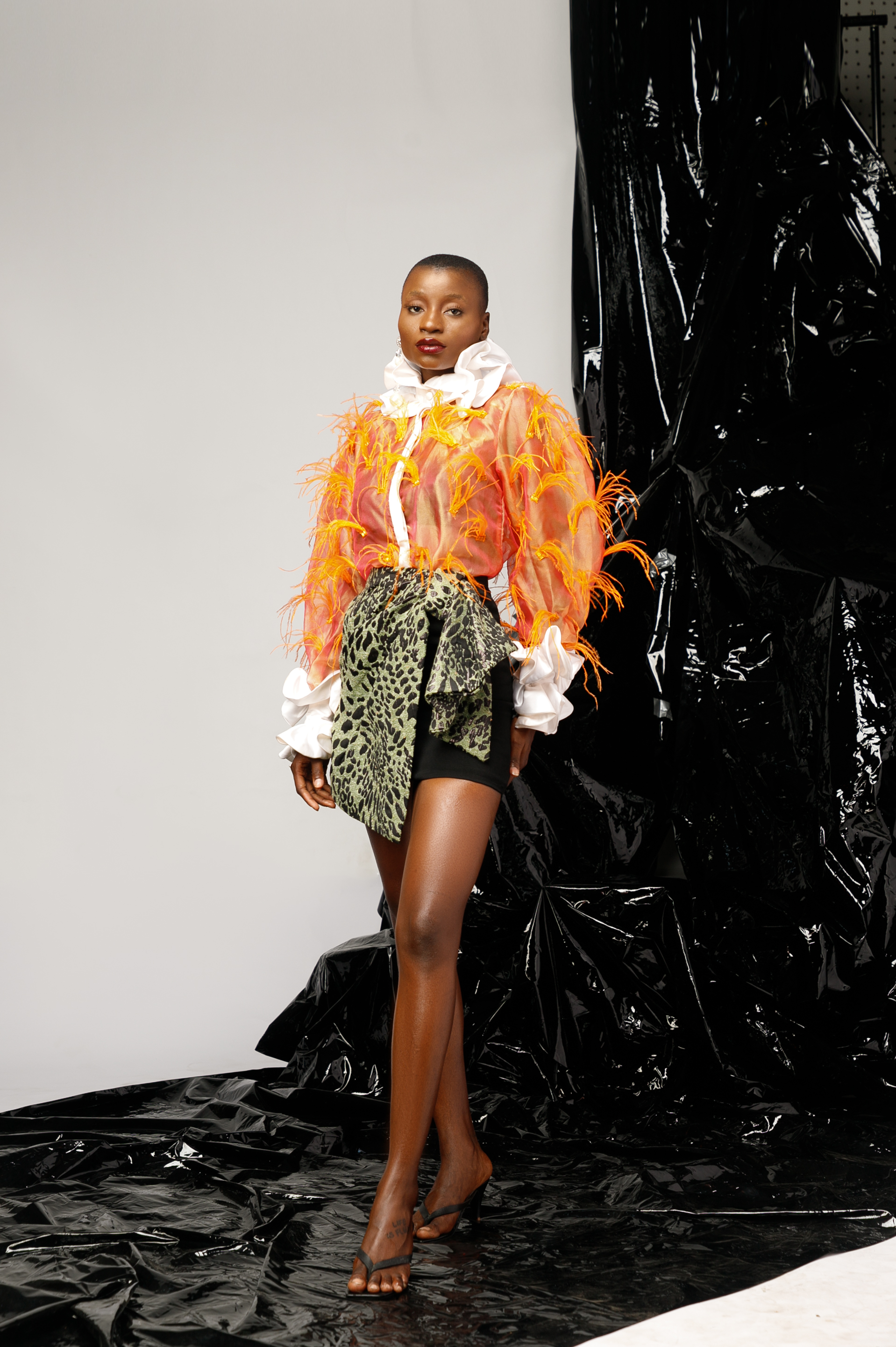
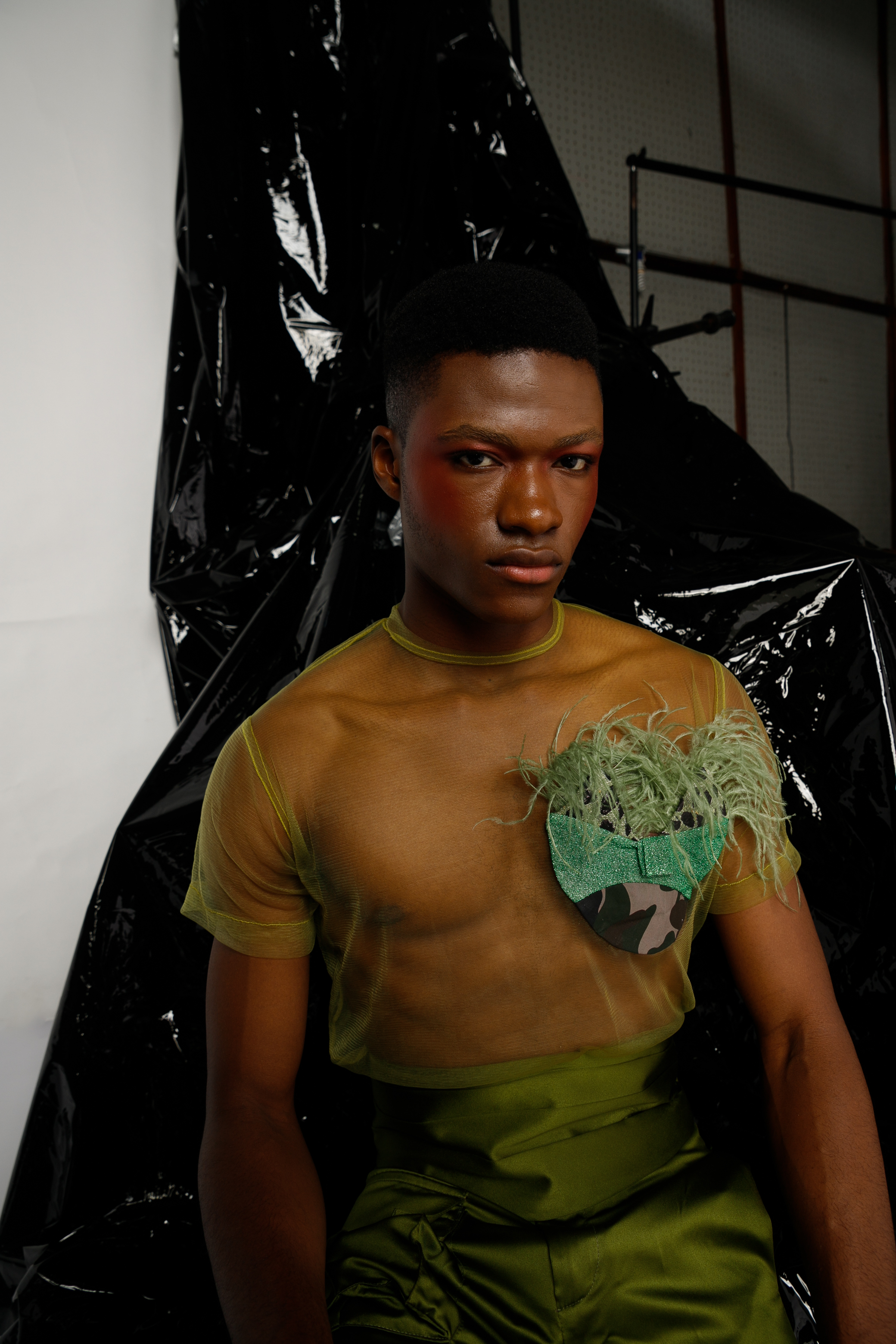
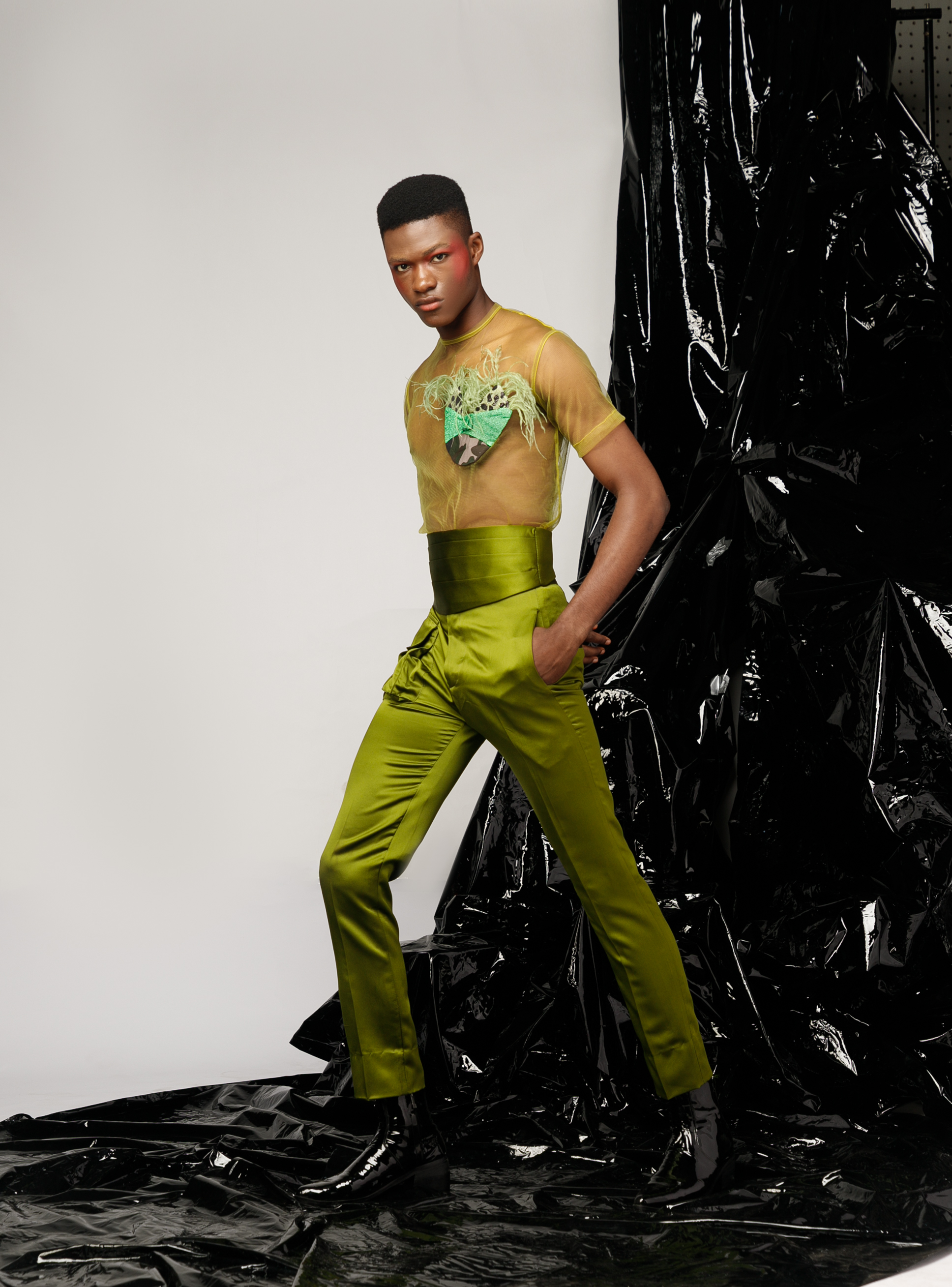
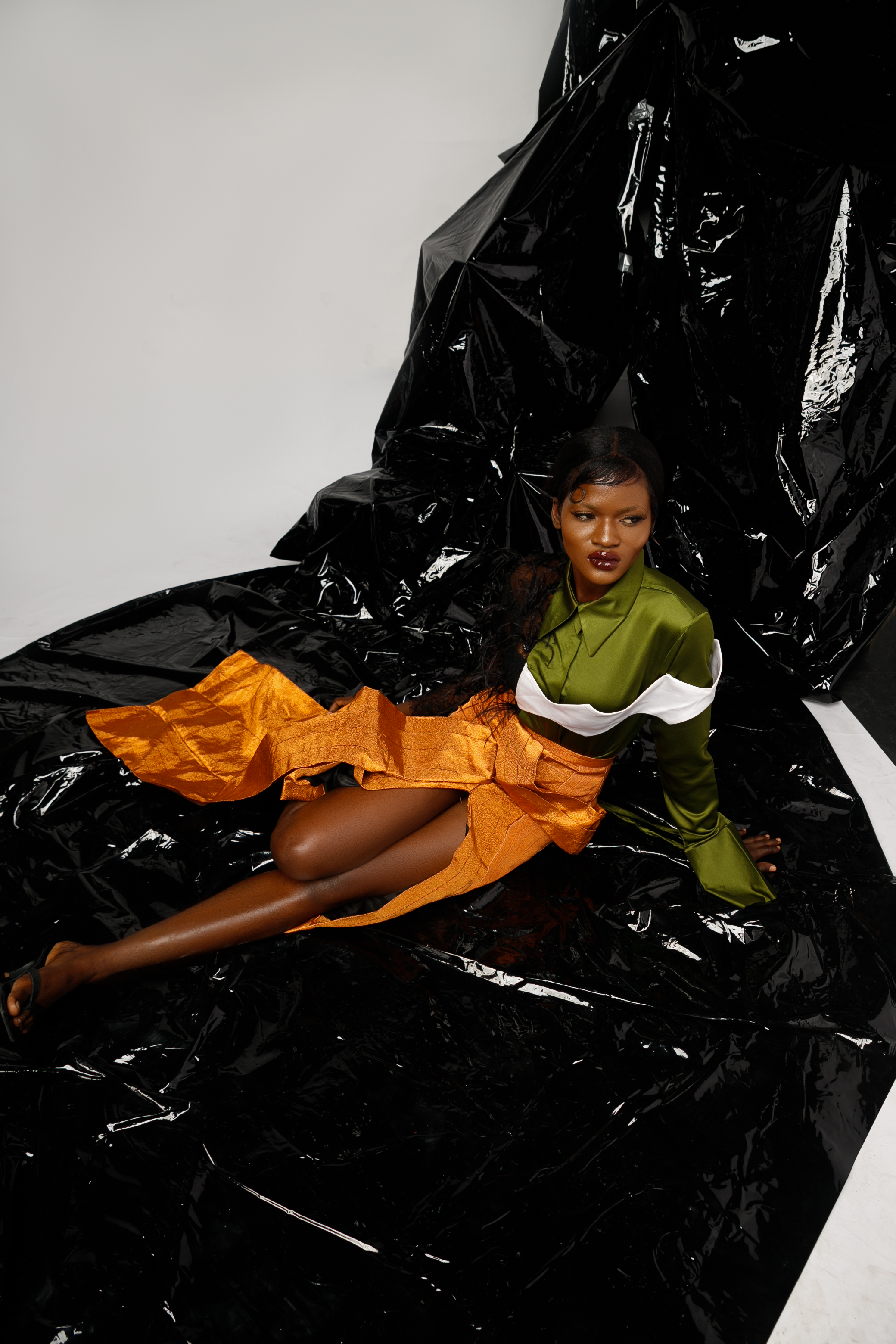
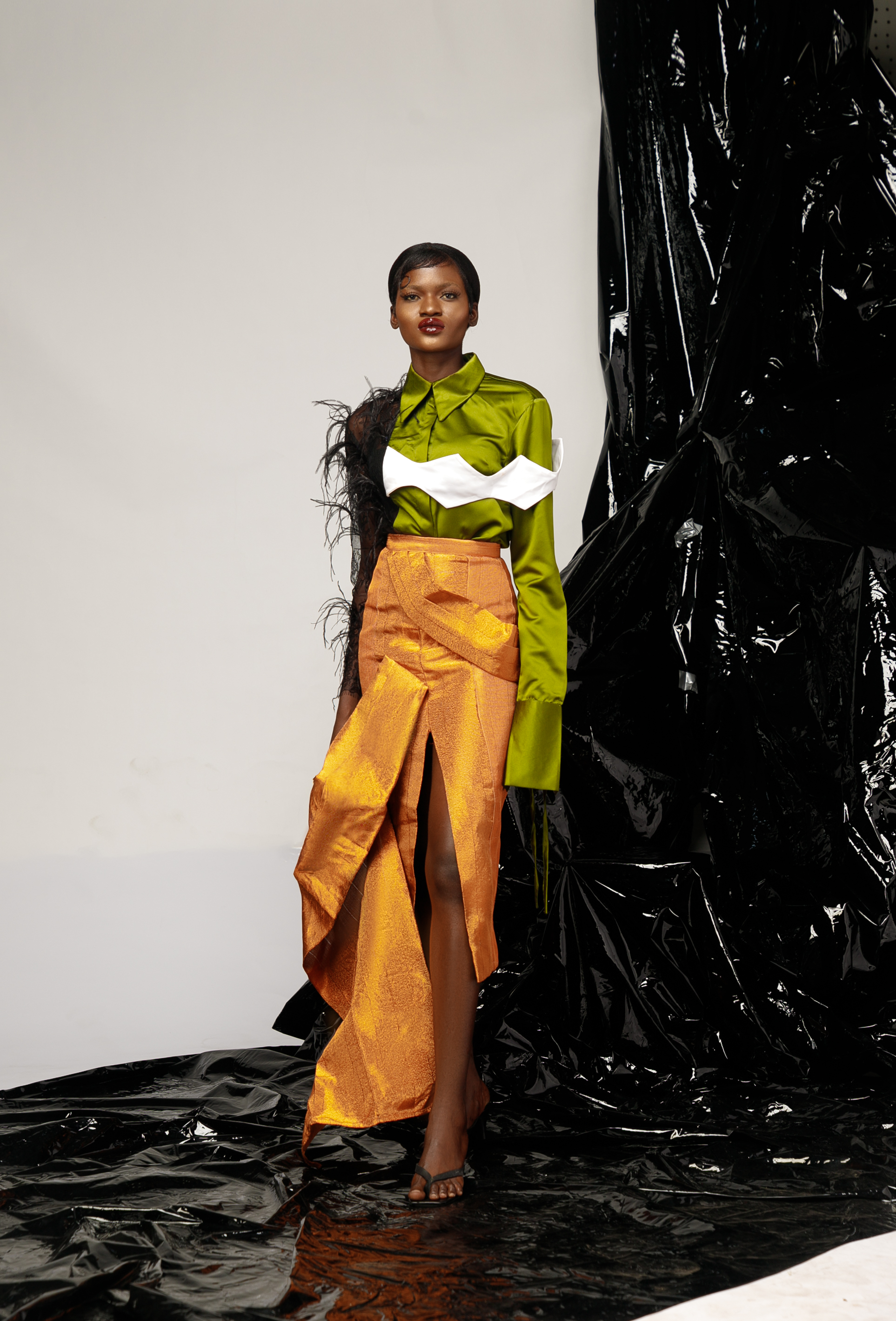
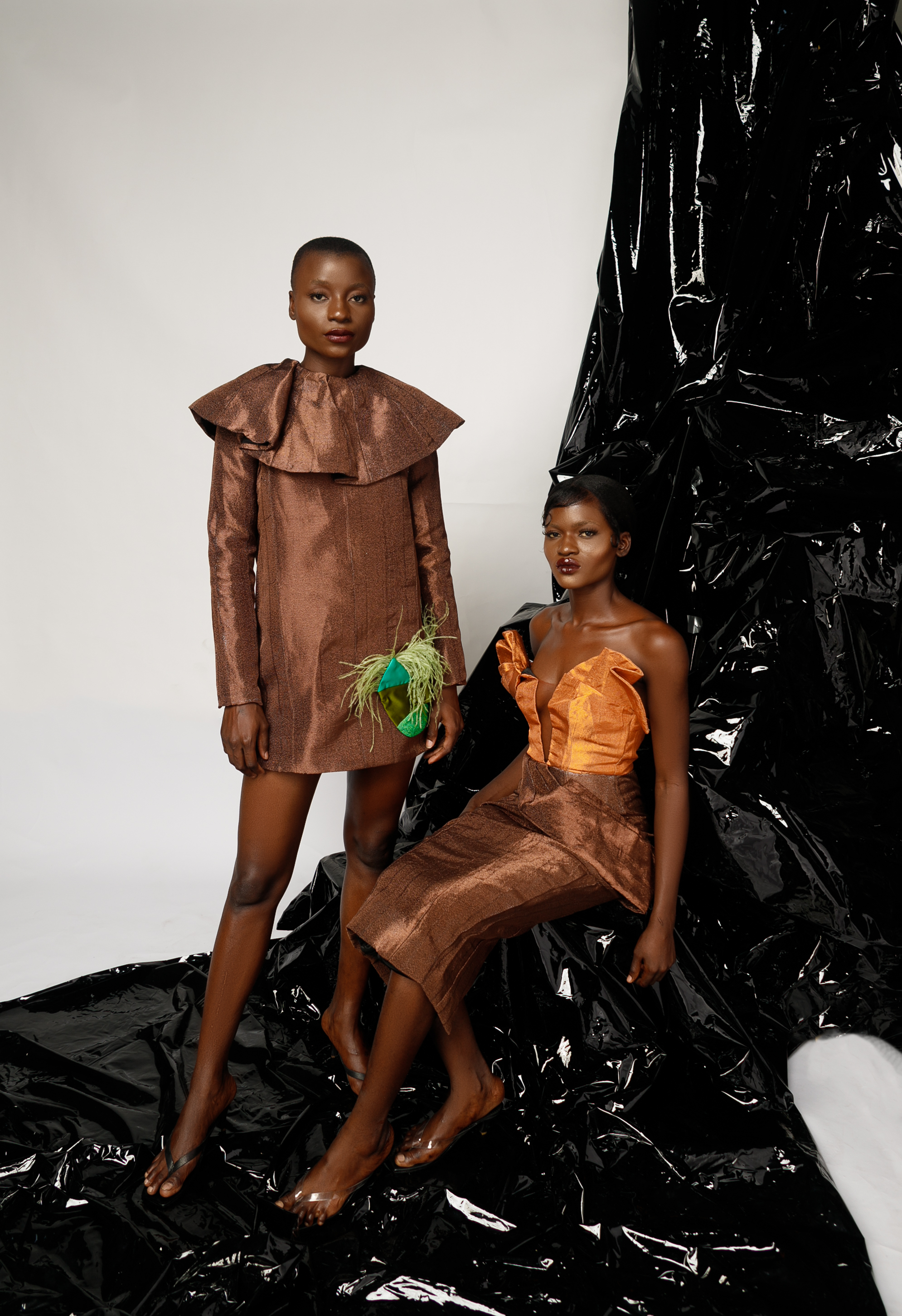
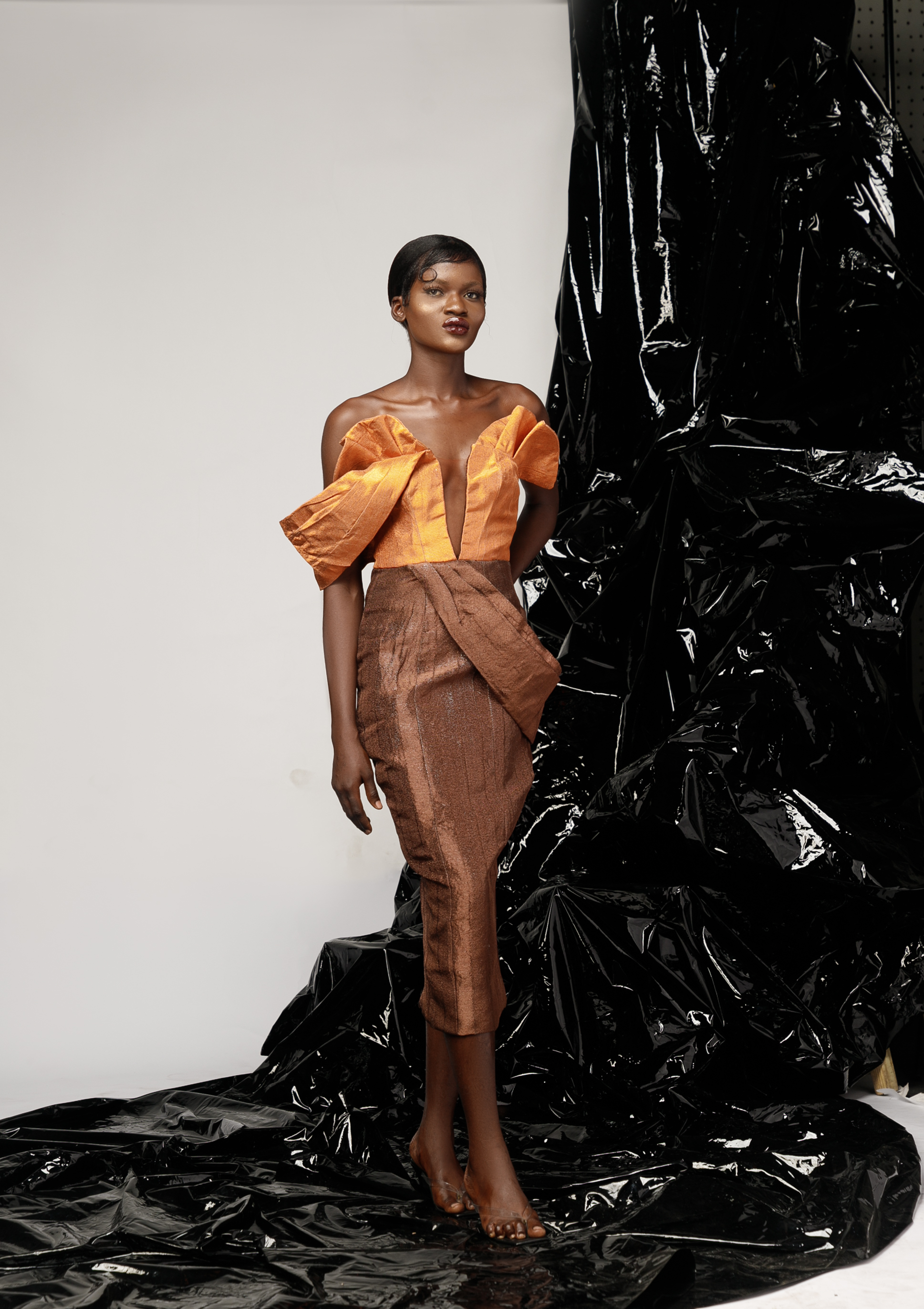
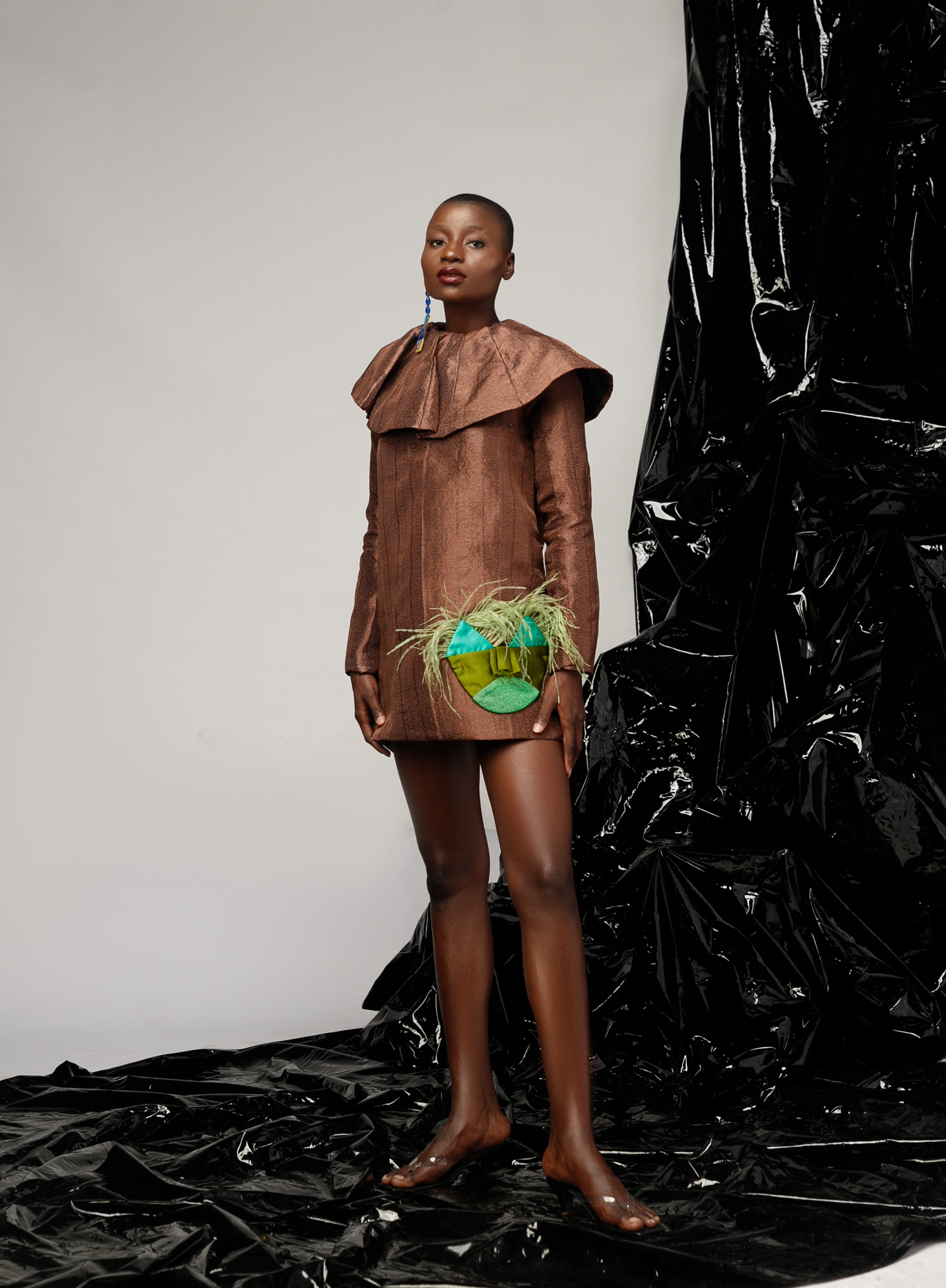
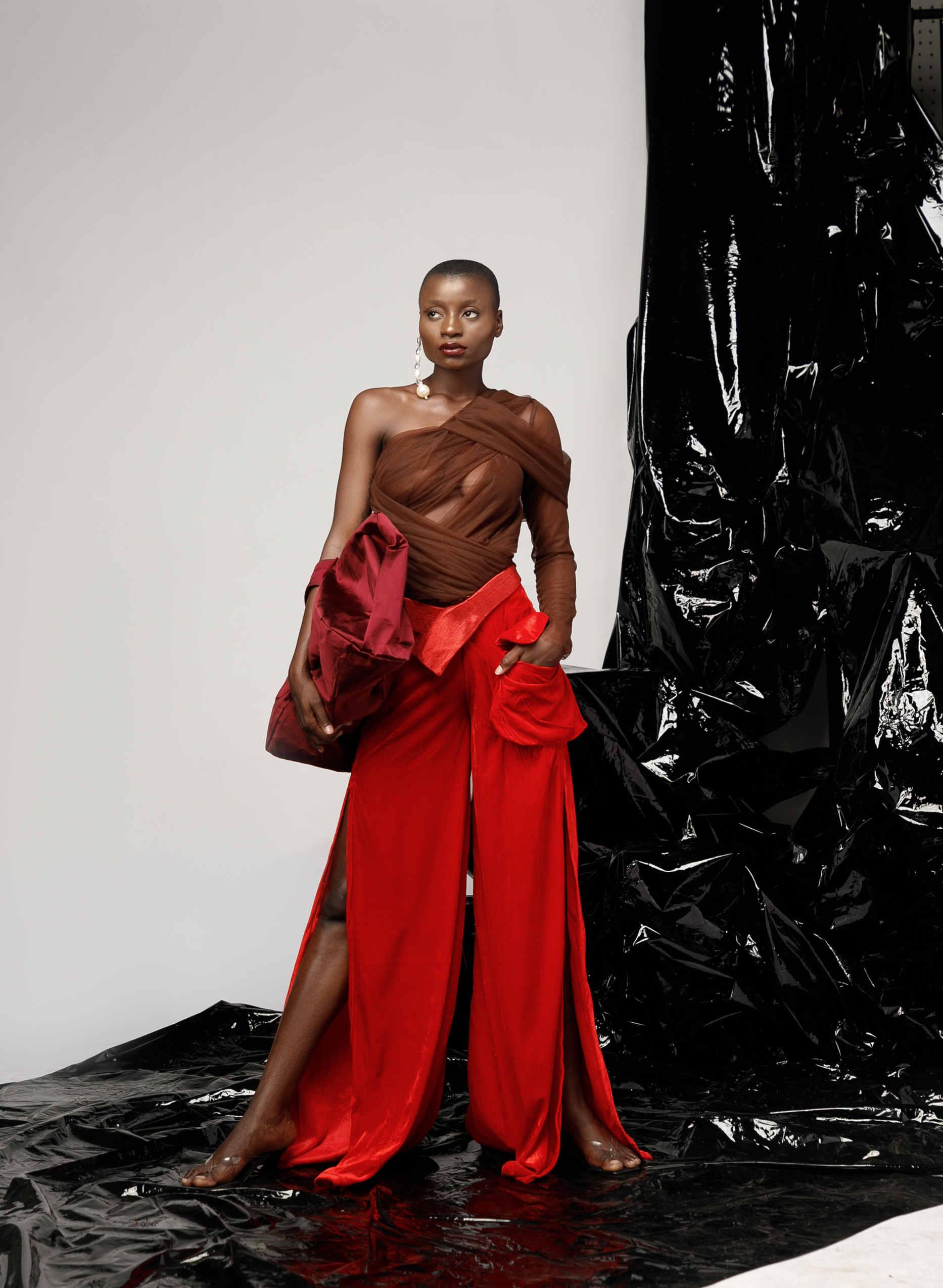
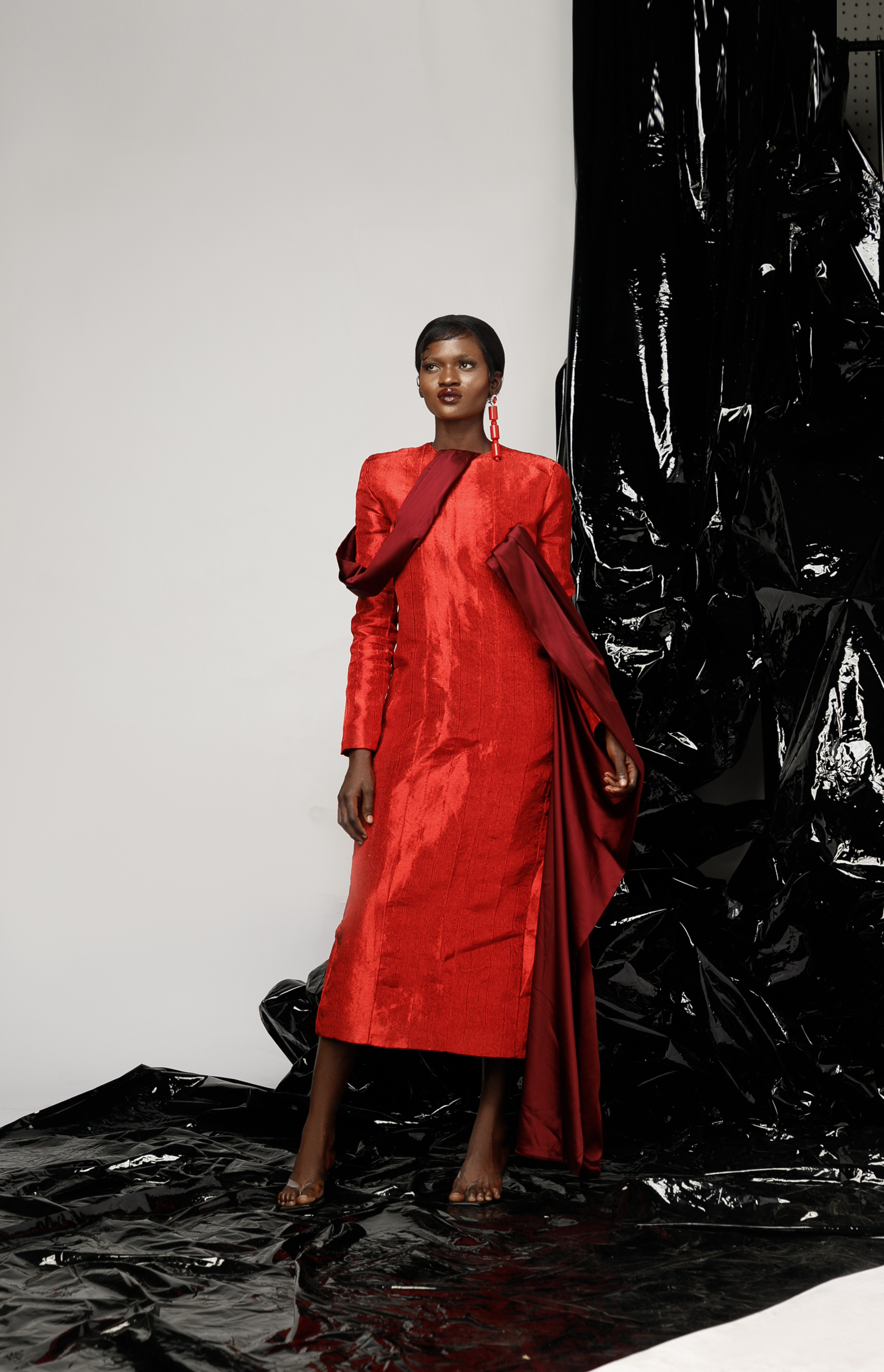
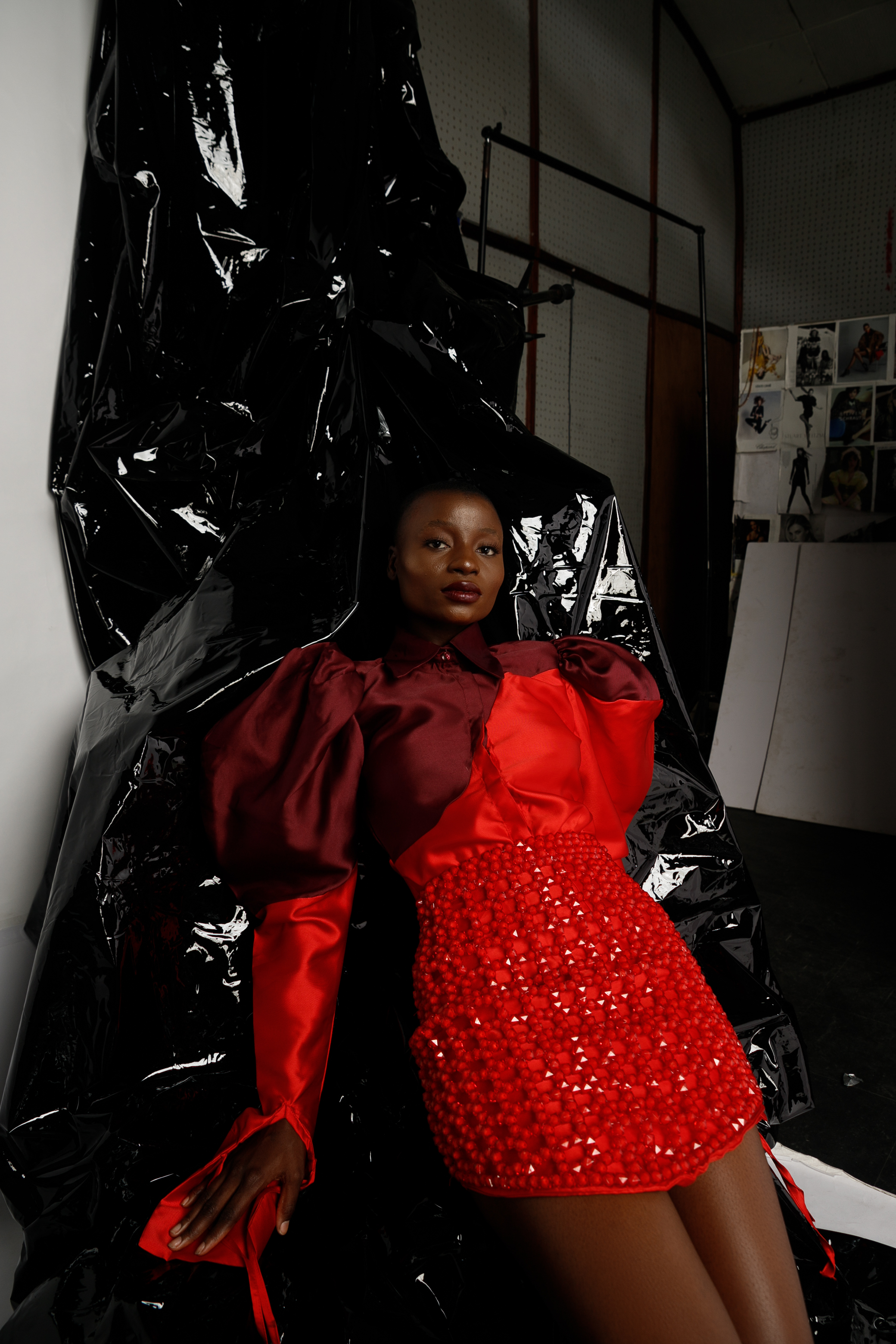
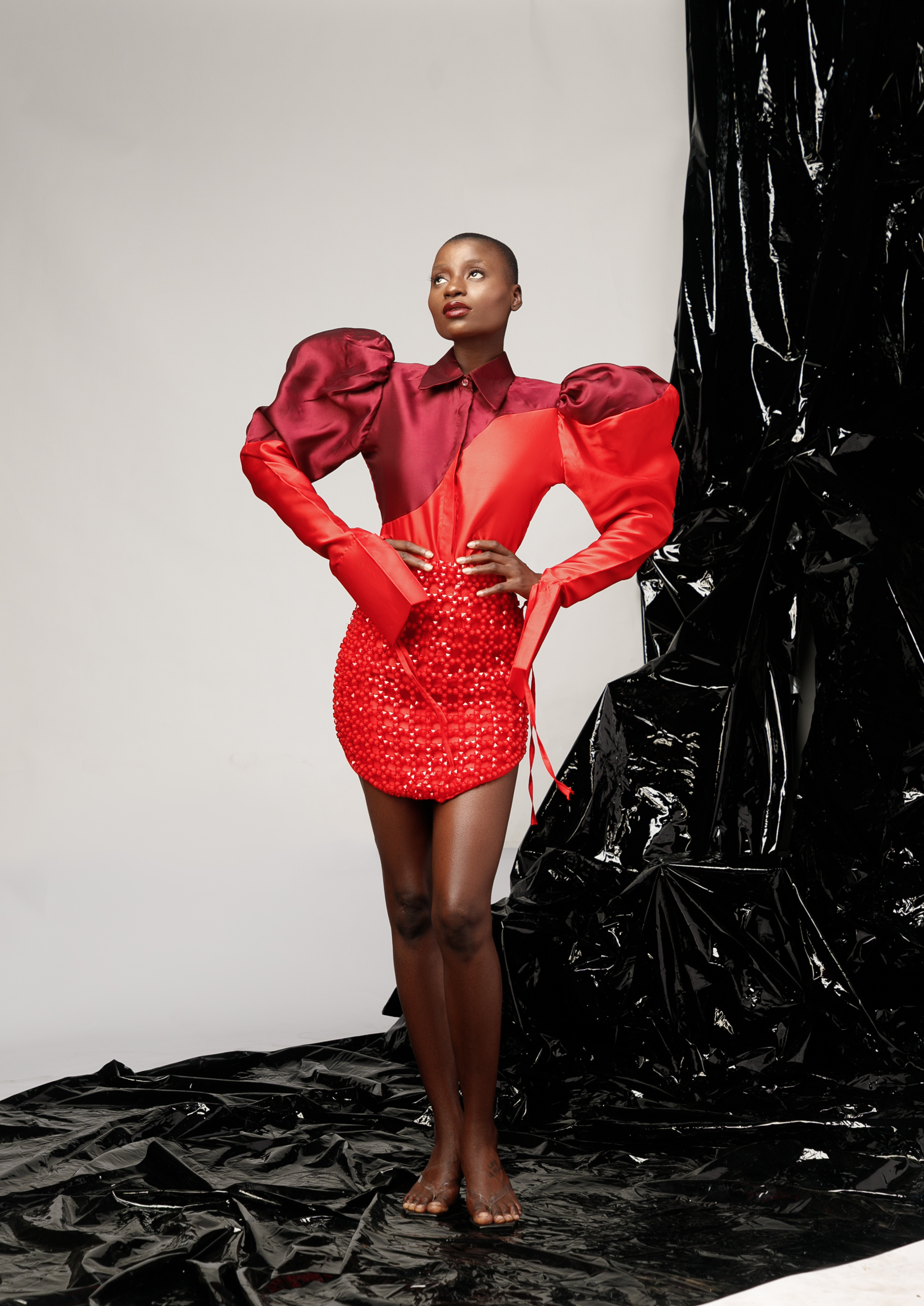
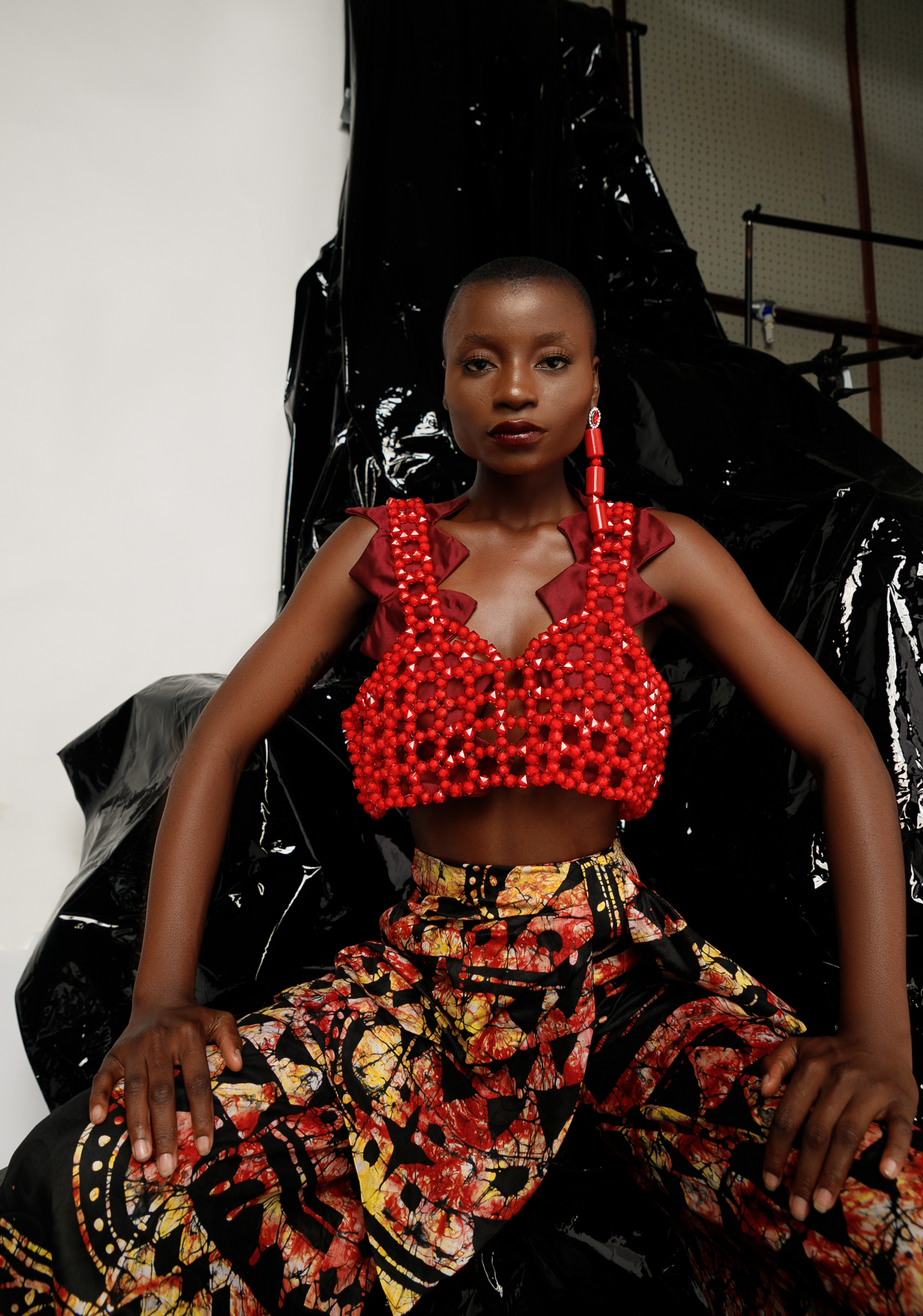
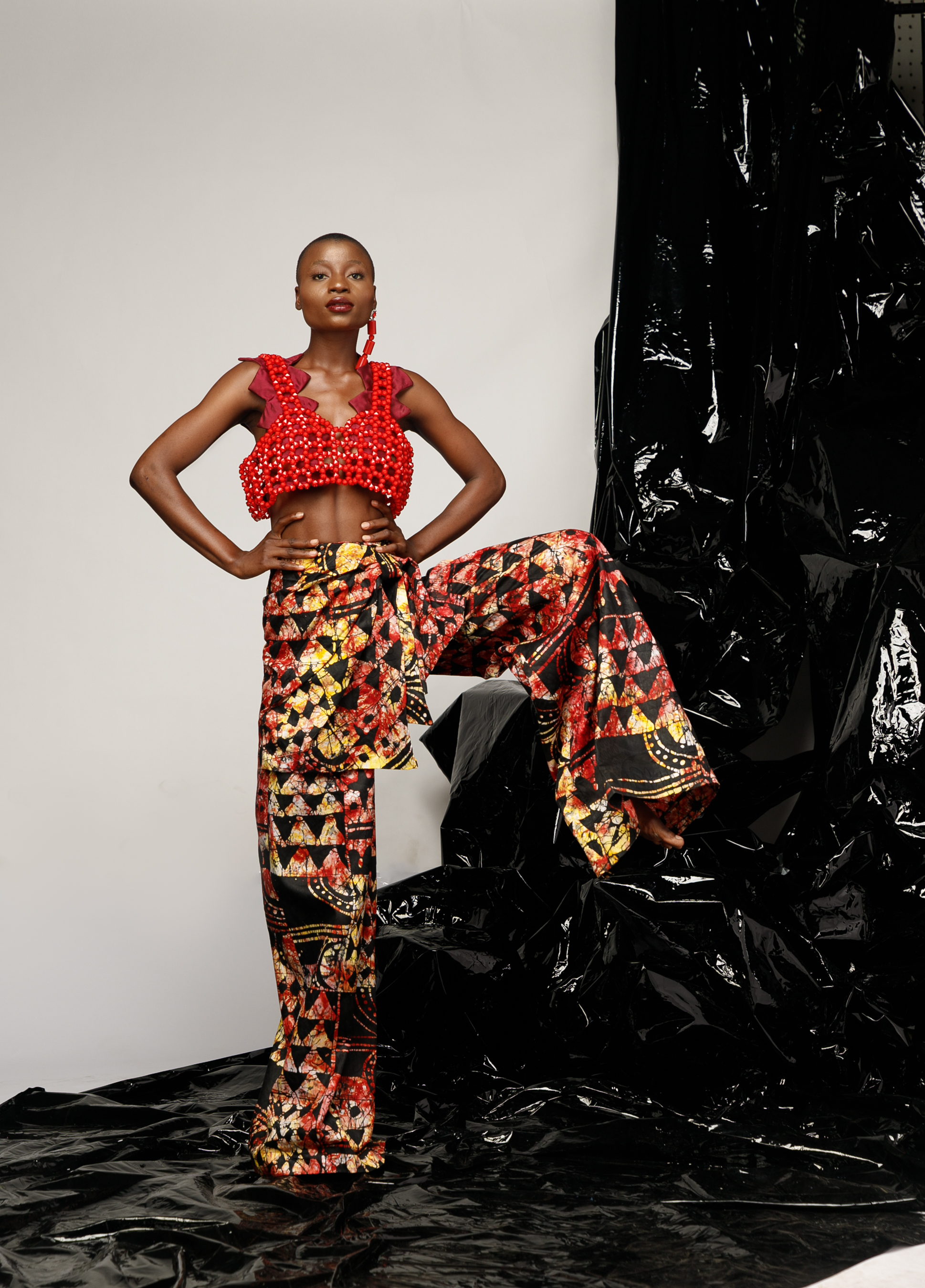
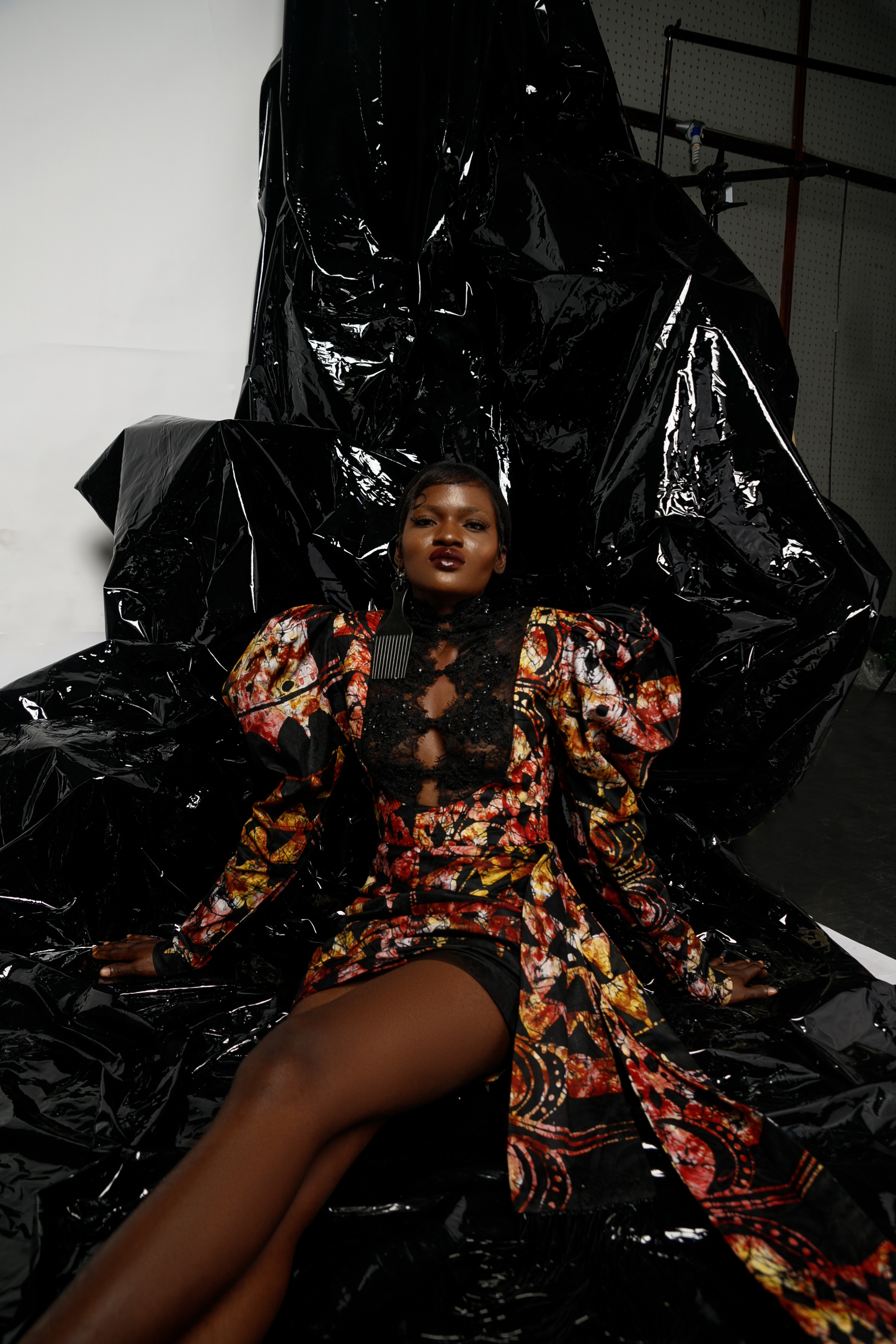
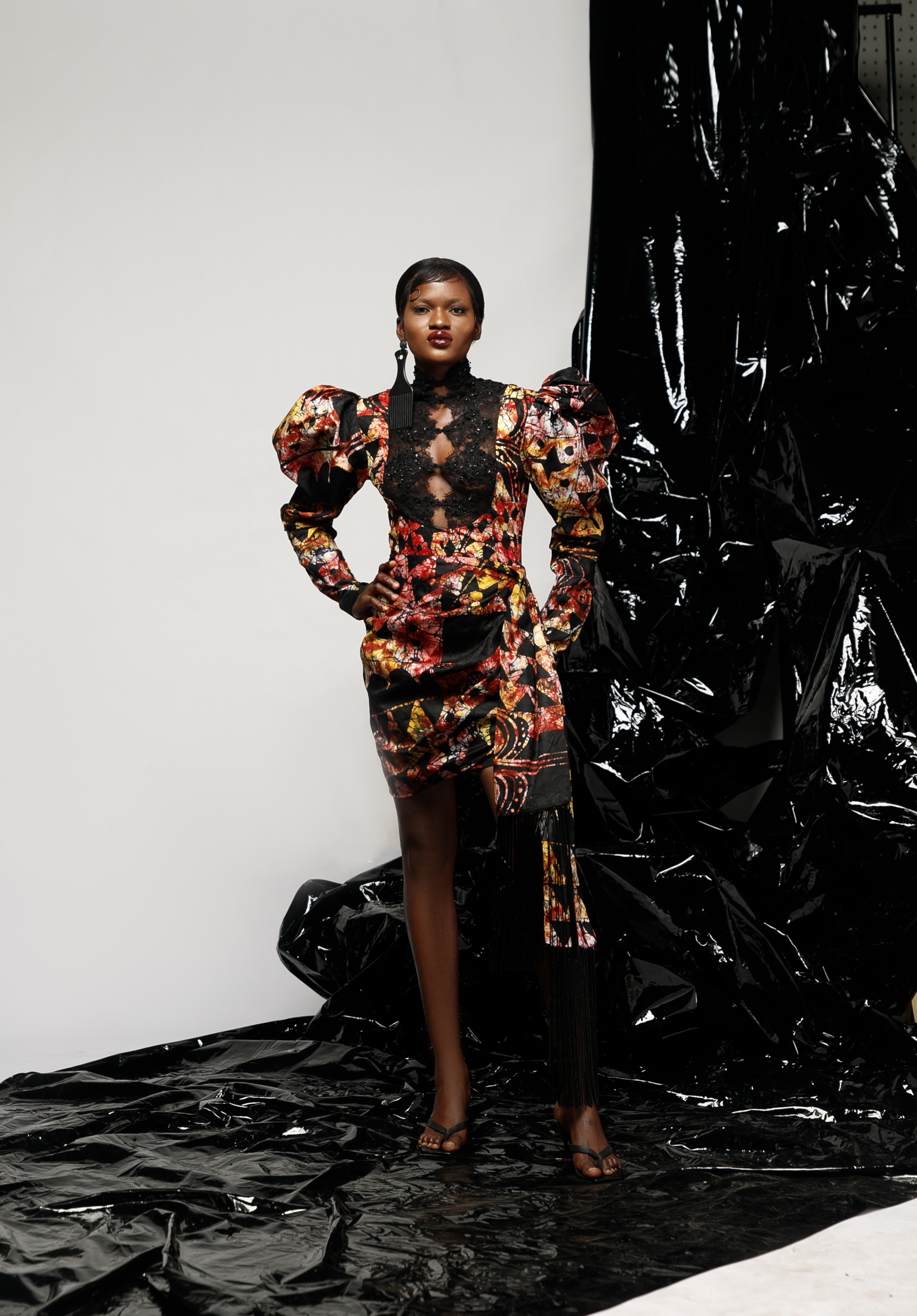
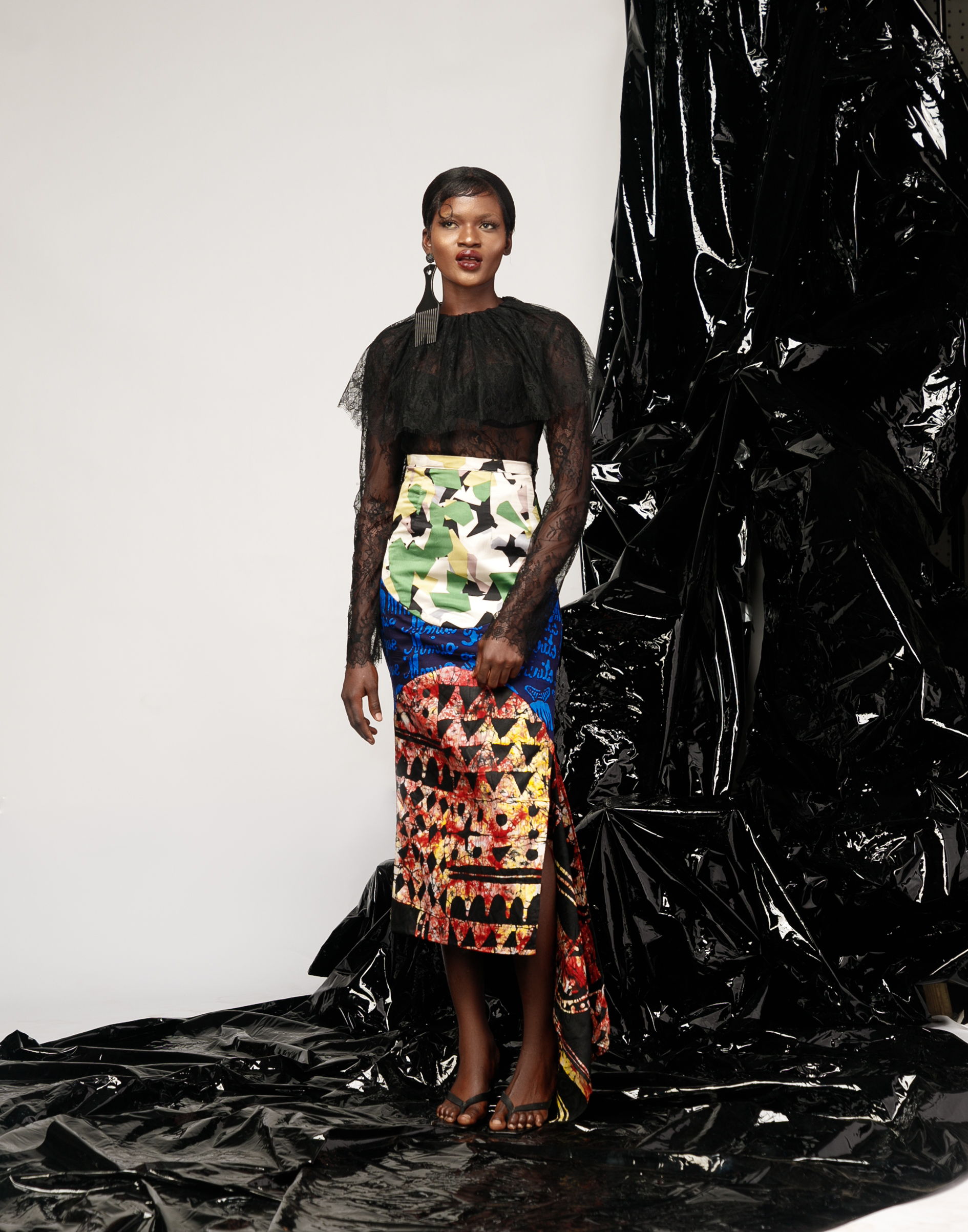
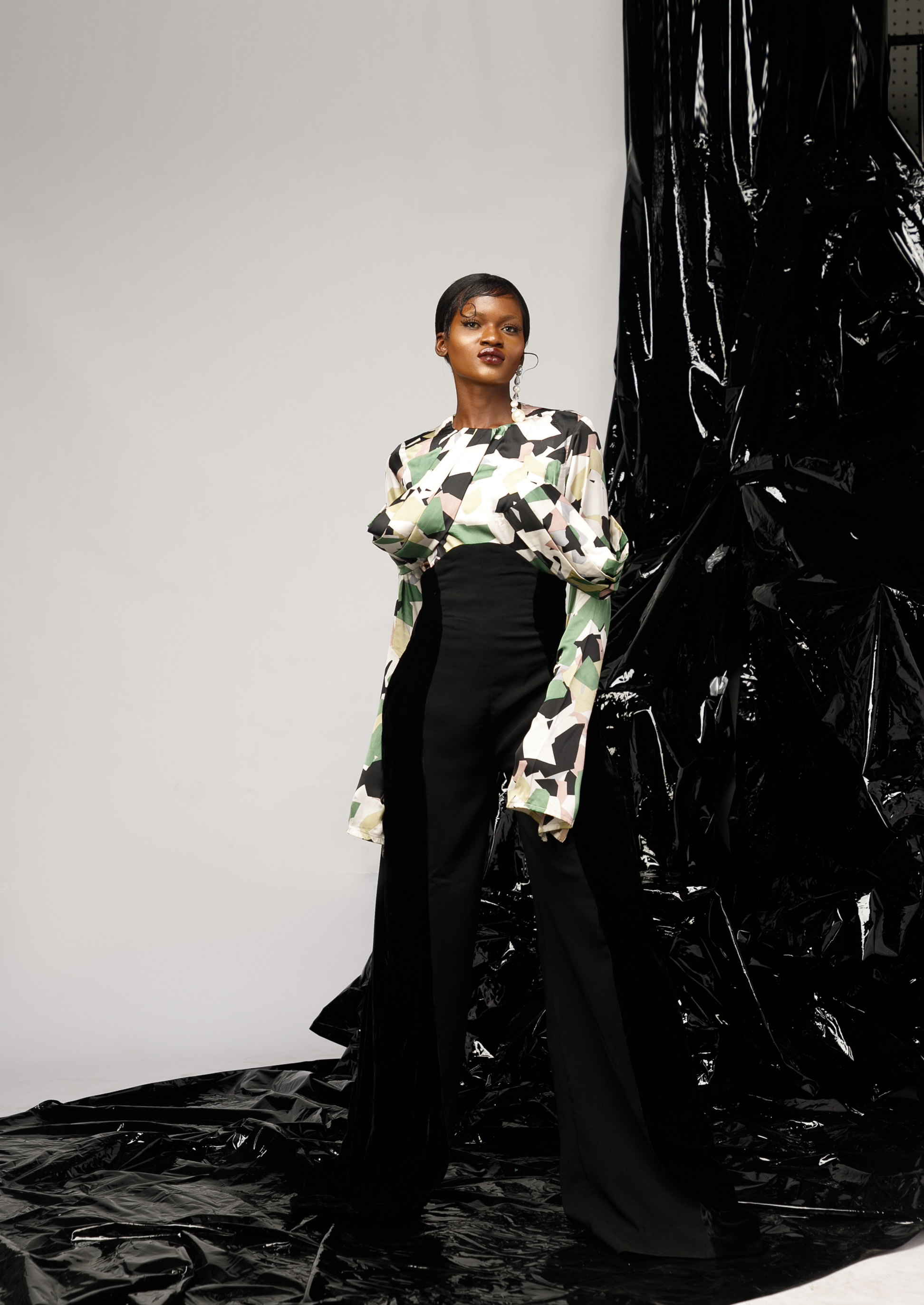
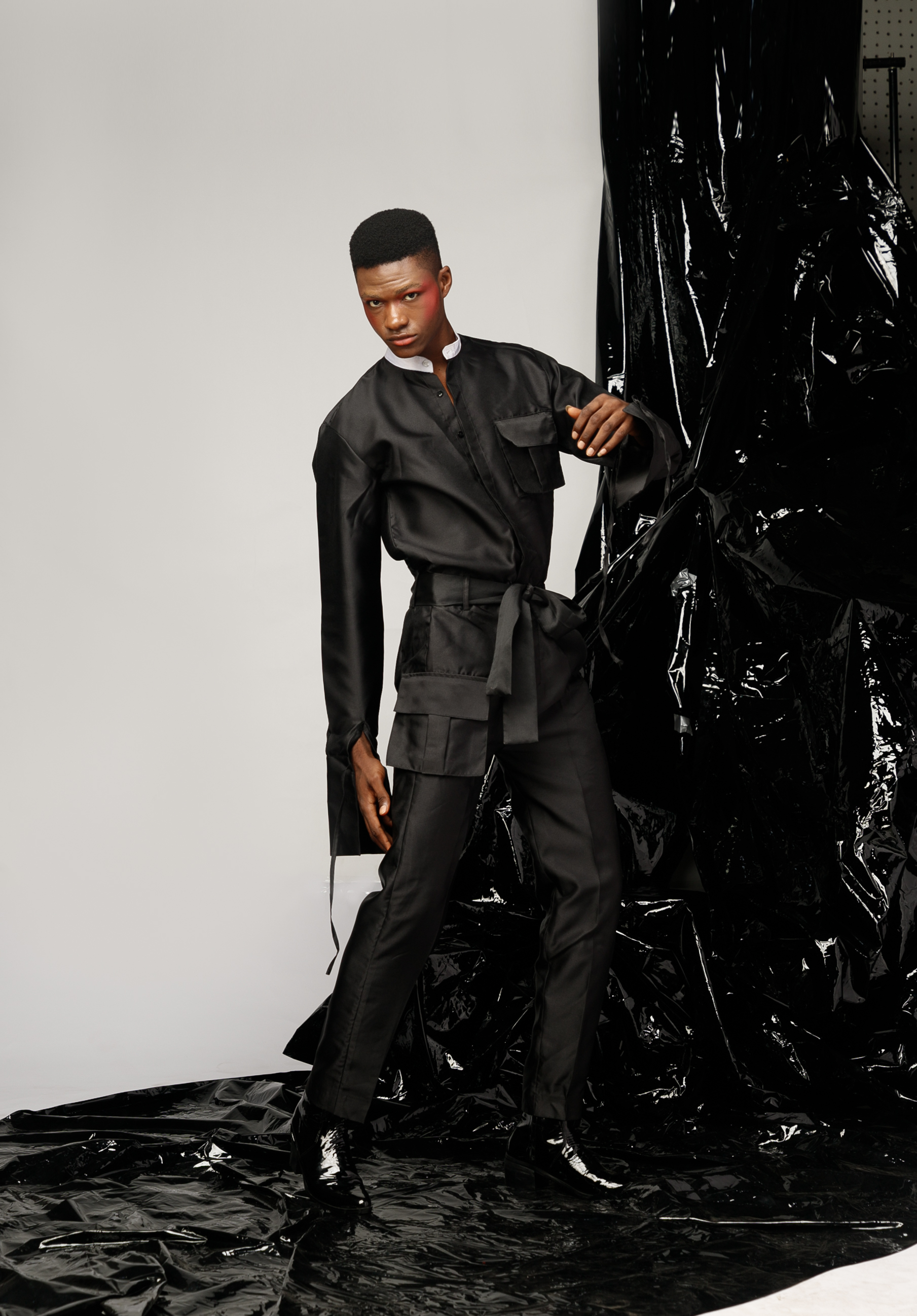
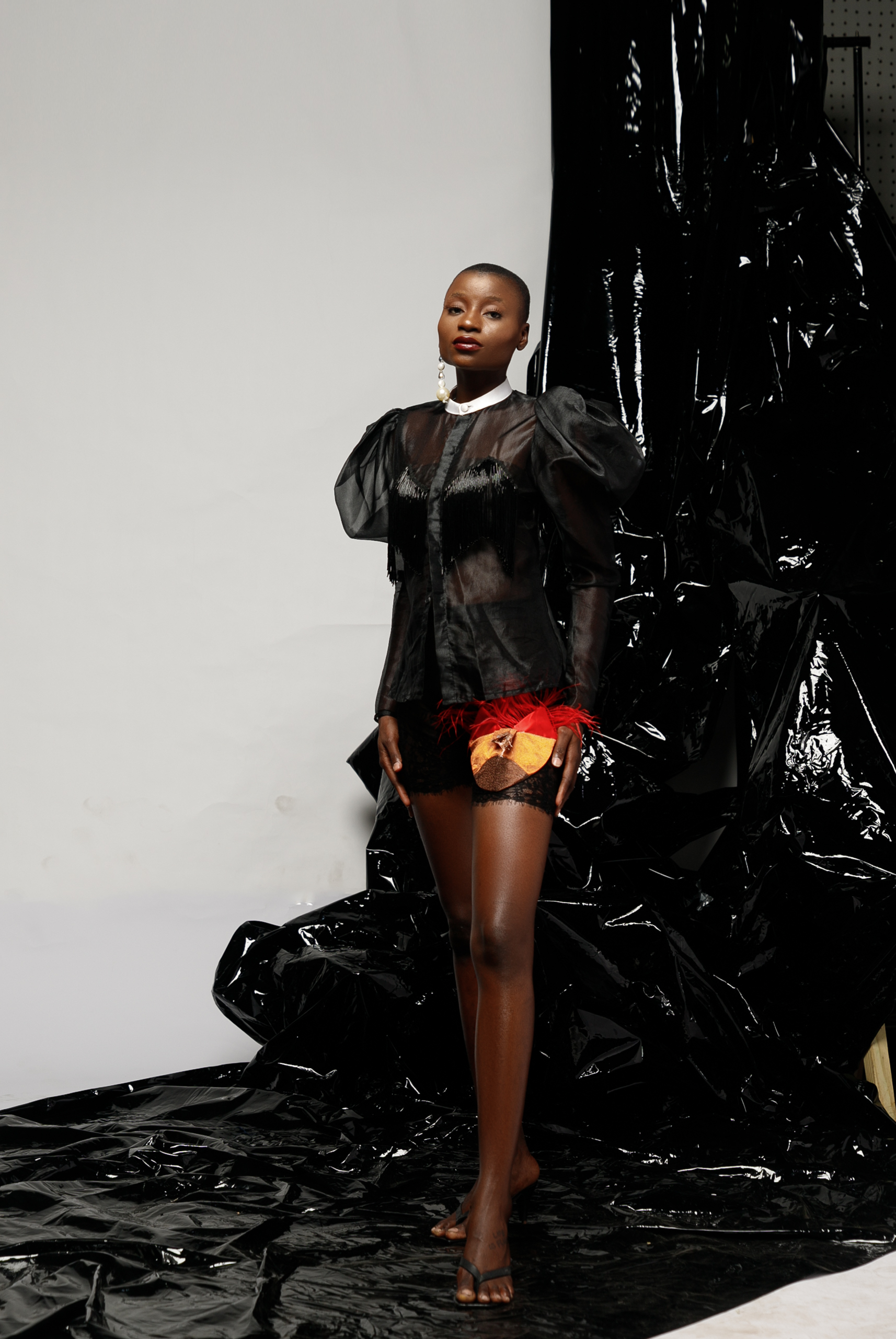
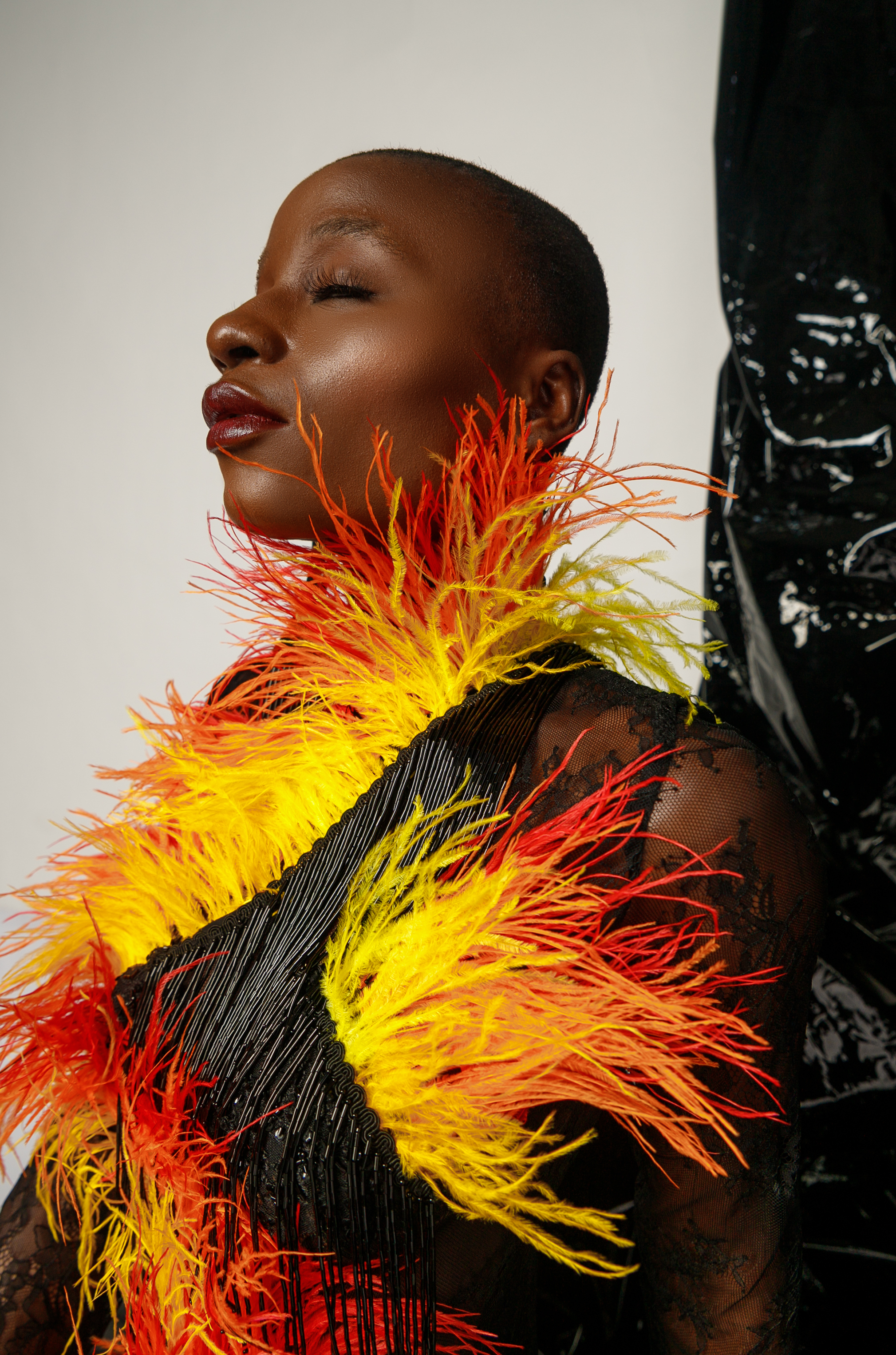
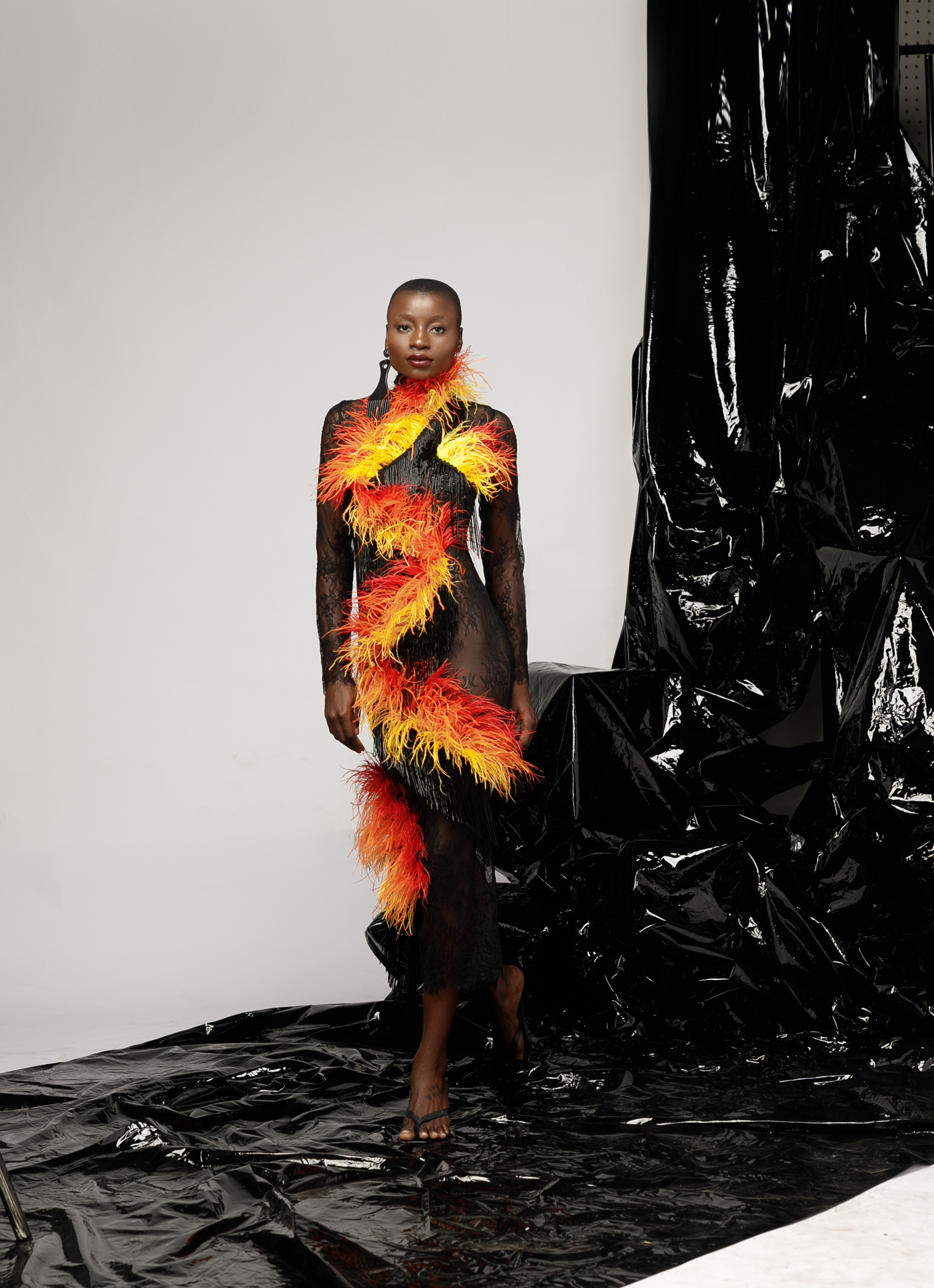
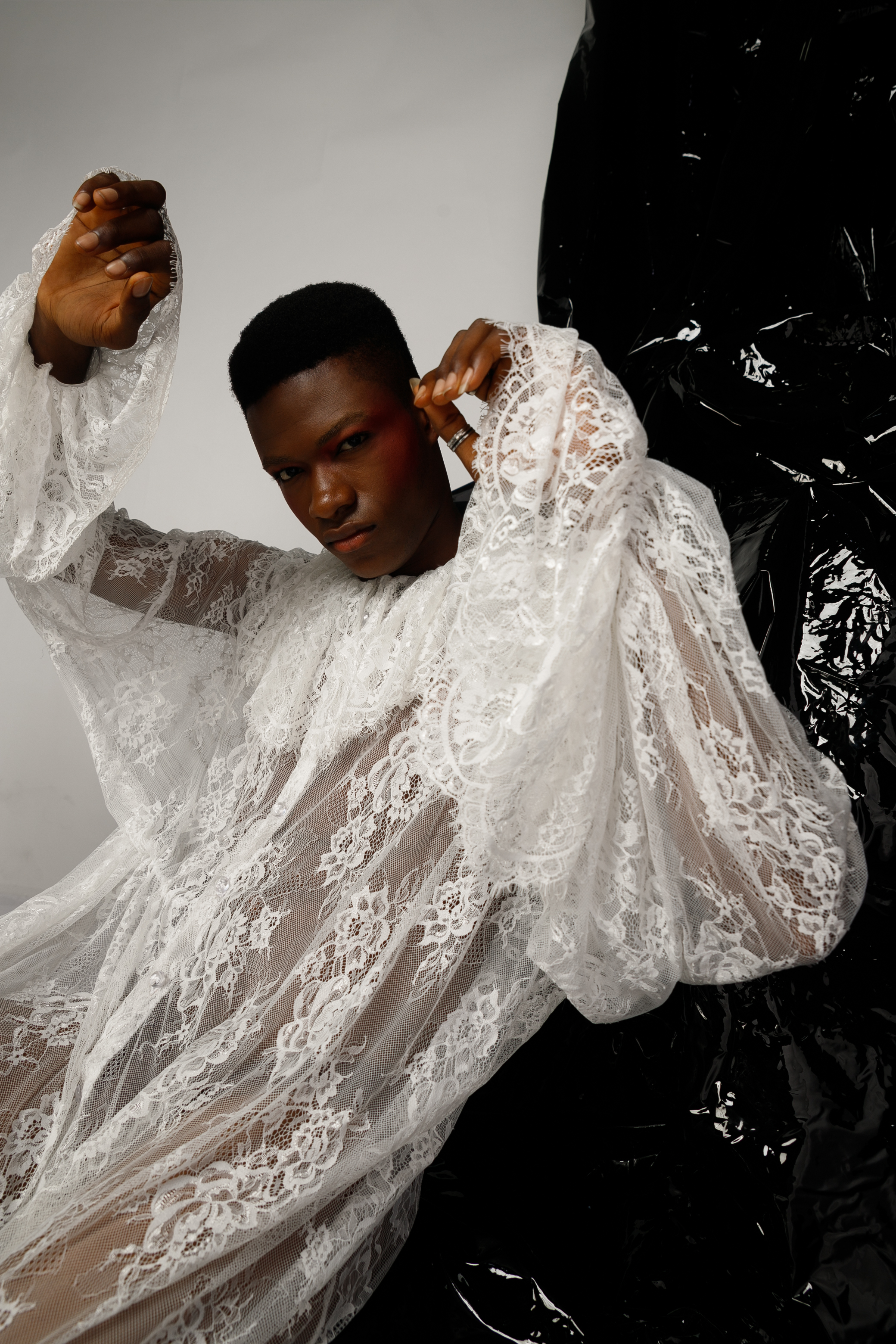
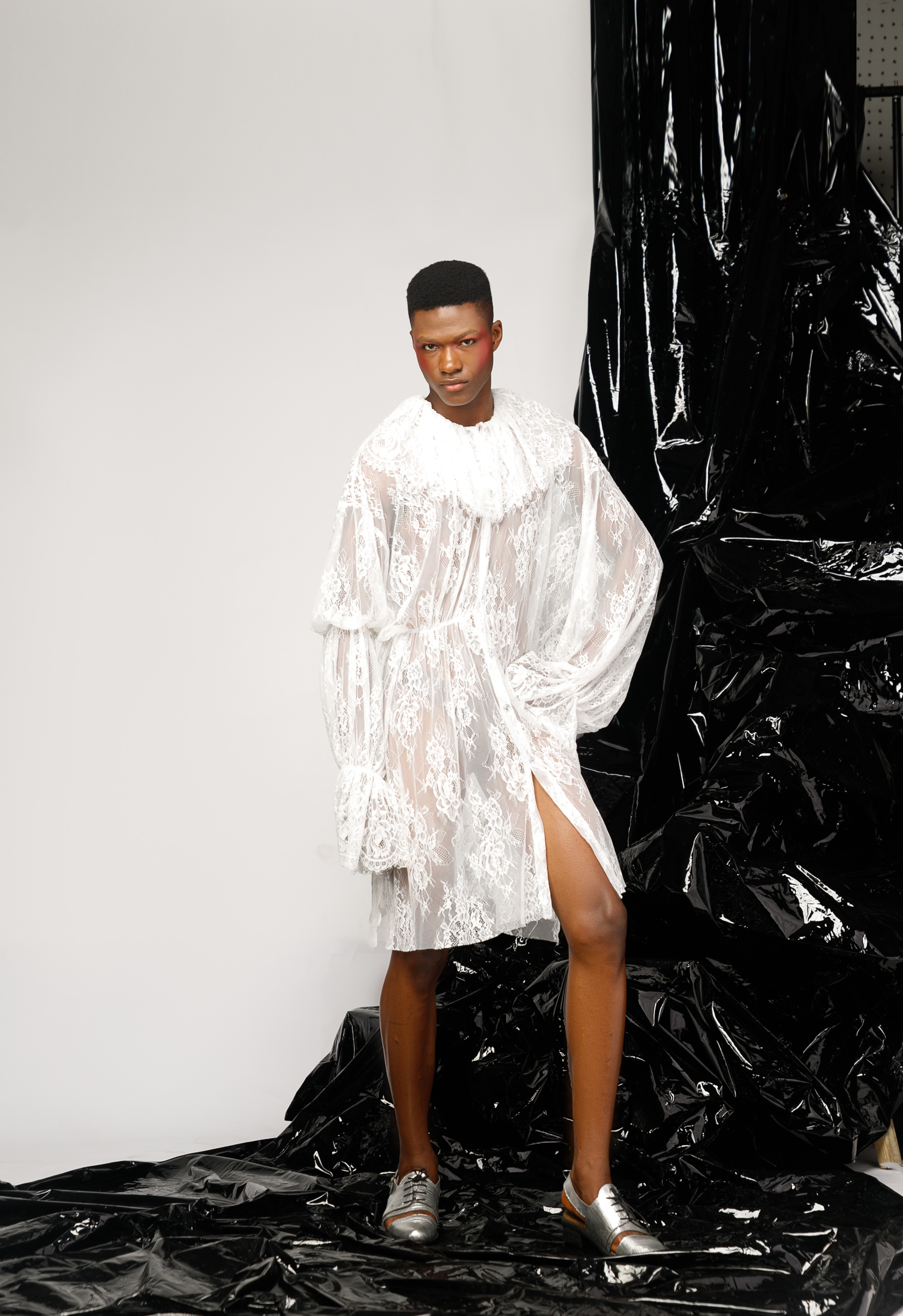
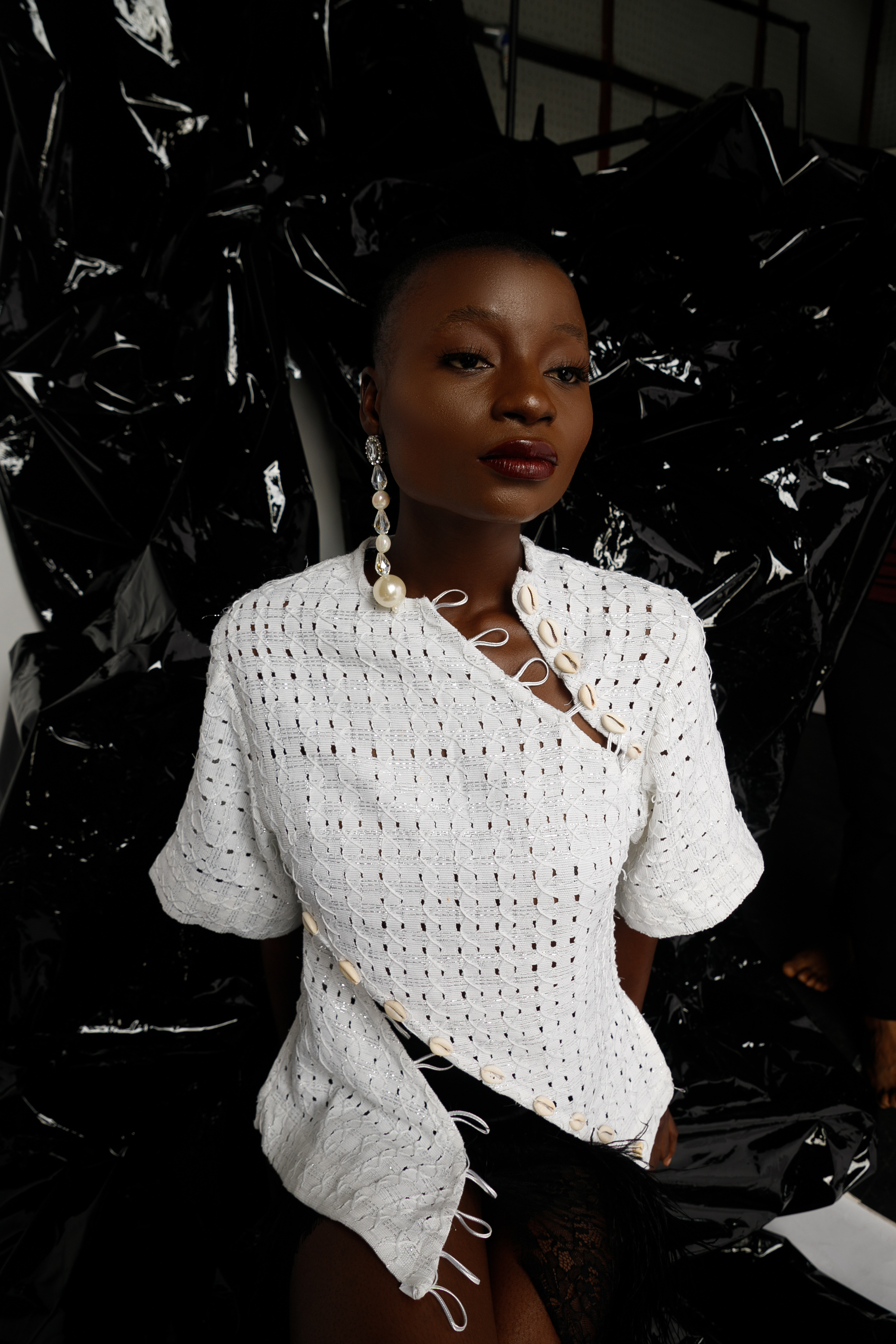
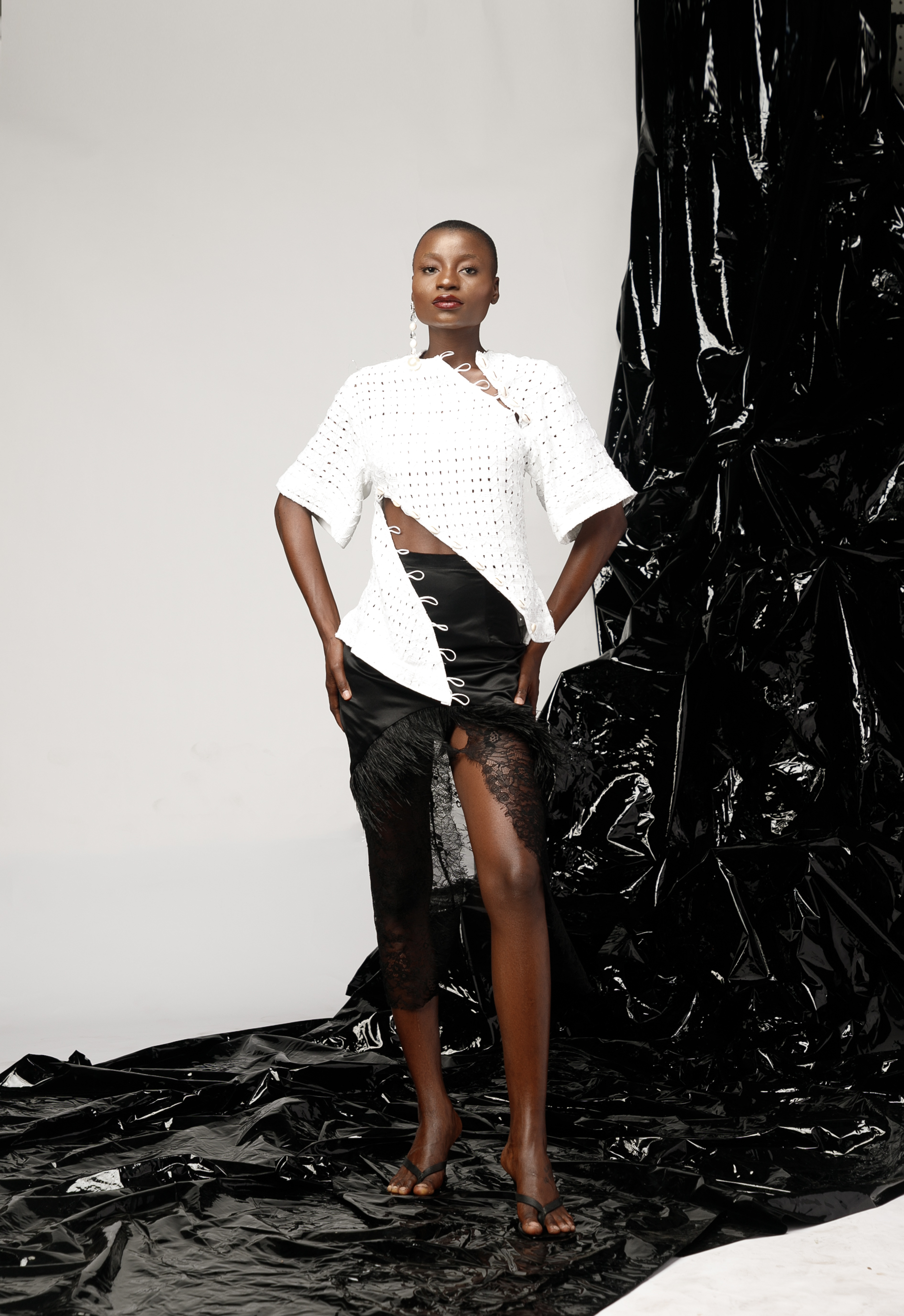
Credits
Male shoes were made in collaboration with Kiing Daviid @kiingdaviidshoes
Female shoes were made in collaboration with Renaissance by Janet @Renaissancebyjanet
Makeup by @Makeupbytemi
Models: Arafah Adele @Arafahthemodel
Tayo Godspower @Tayogodspower
Ceejay Ilo @Ceejay_ilo
Creative direction by Frank Aghuno @frankbydesign_
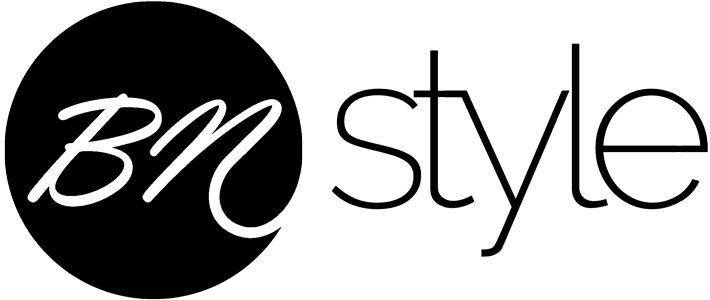
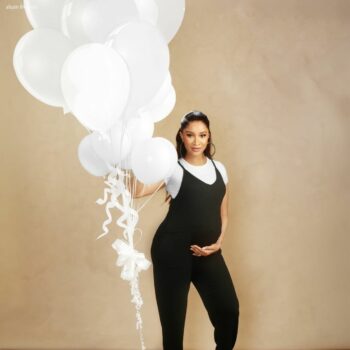
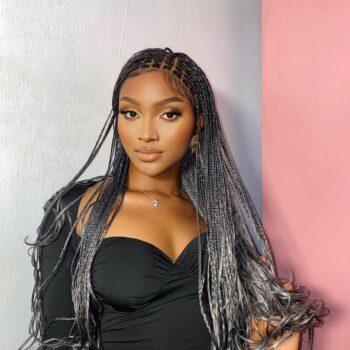
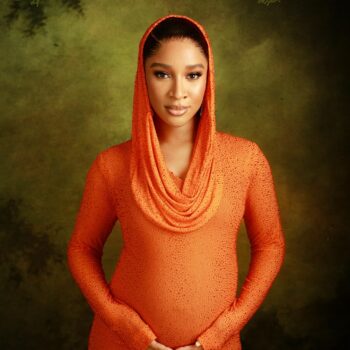
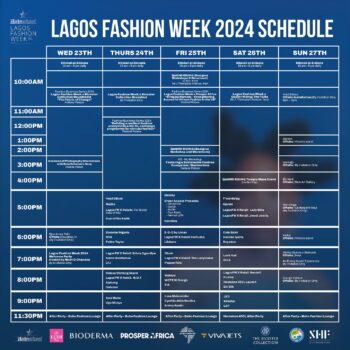
Please stop feminising men. It’s not fashion and it looks horrible. Dont force it upon them. Please…..